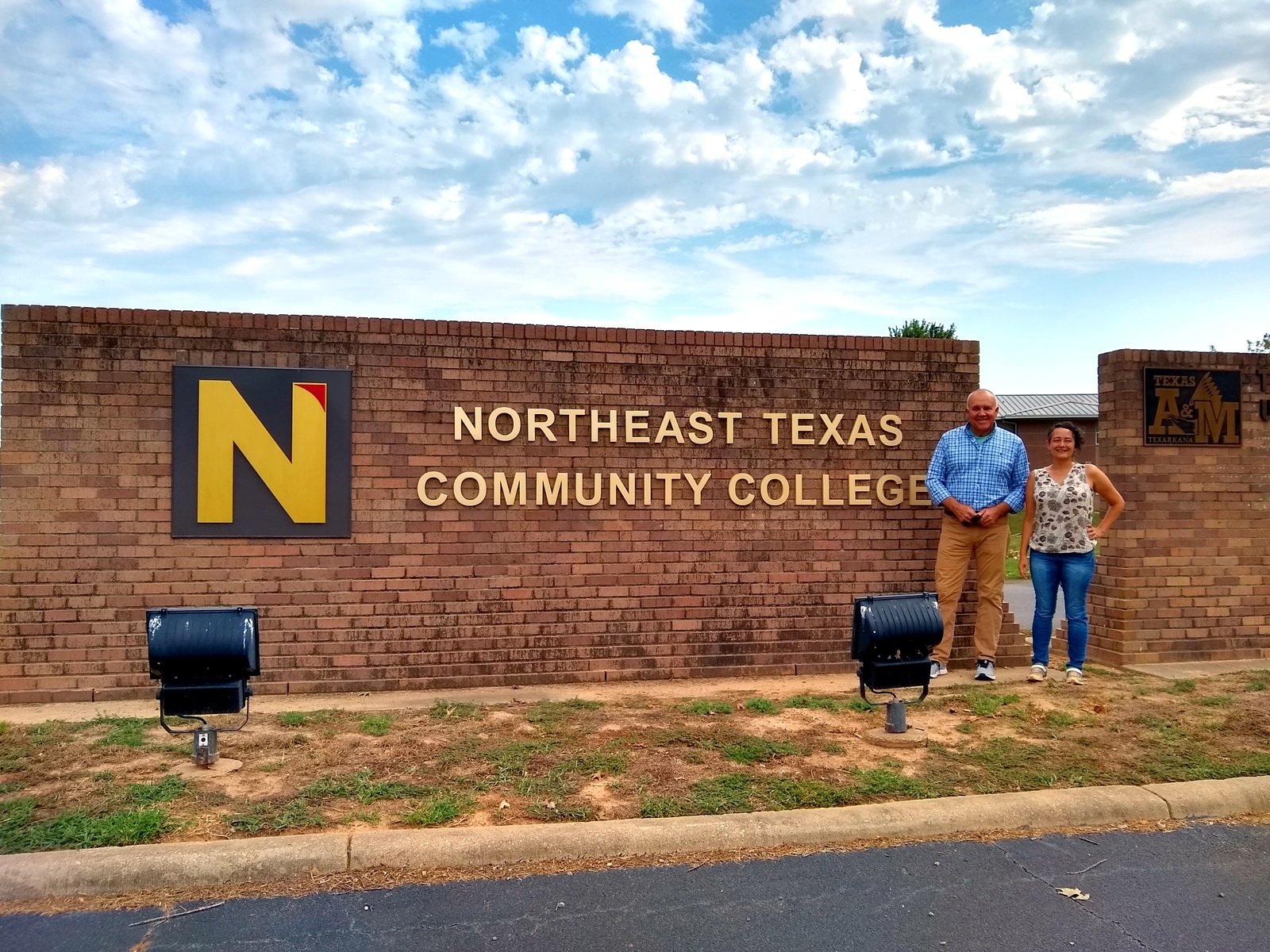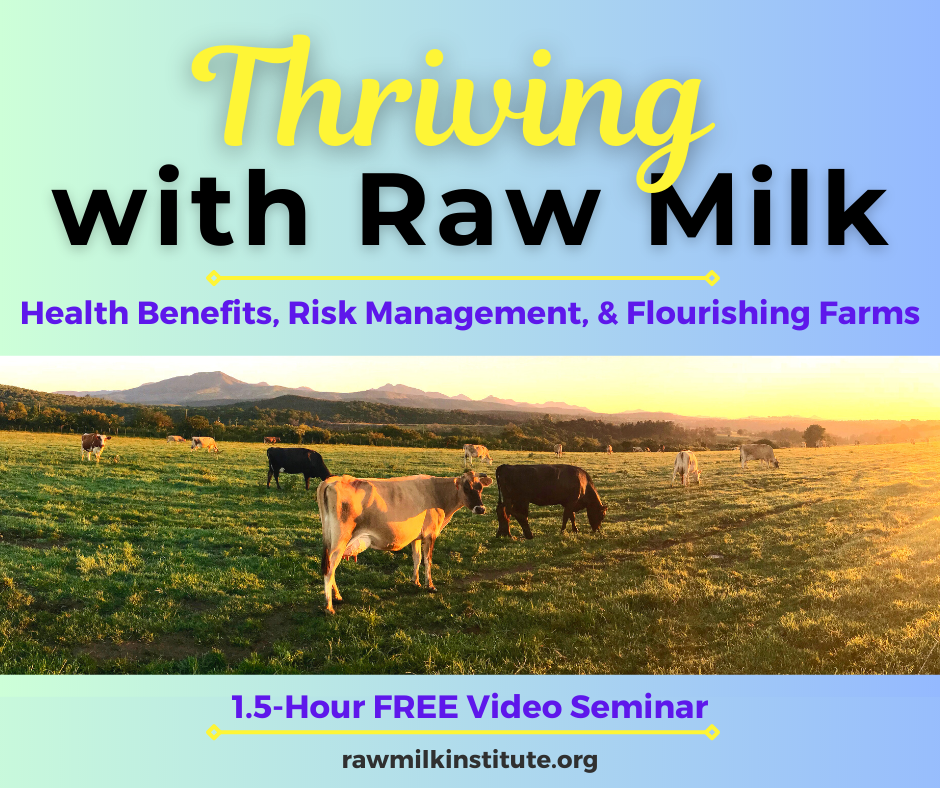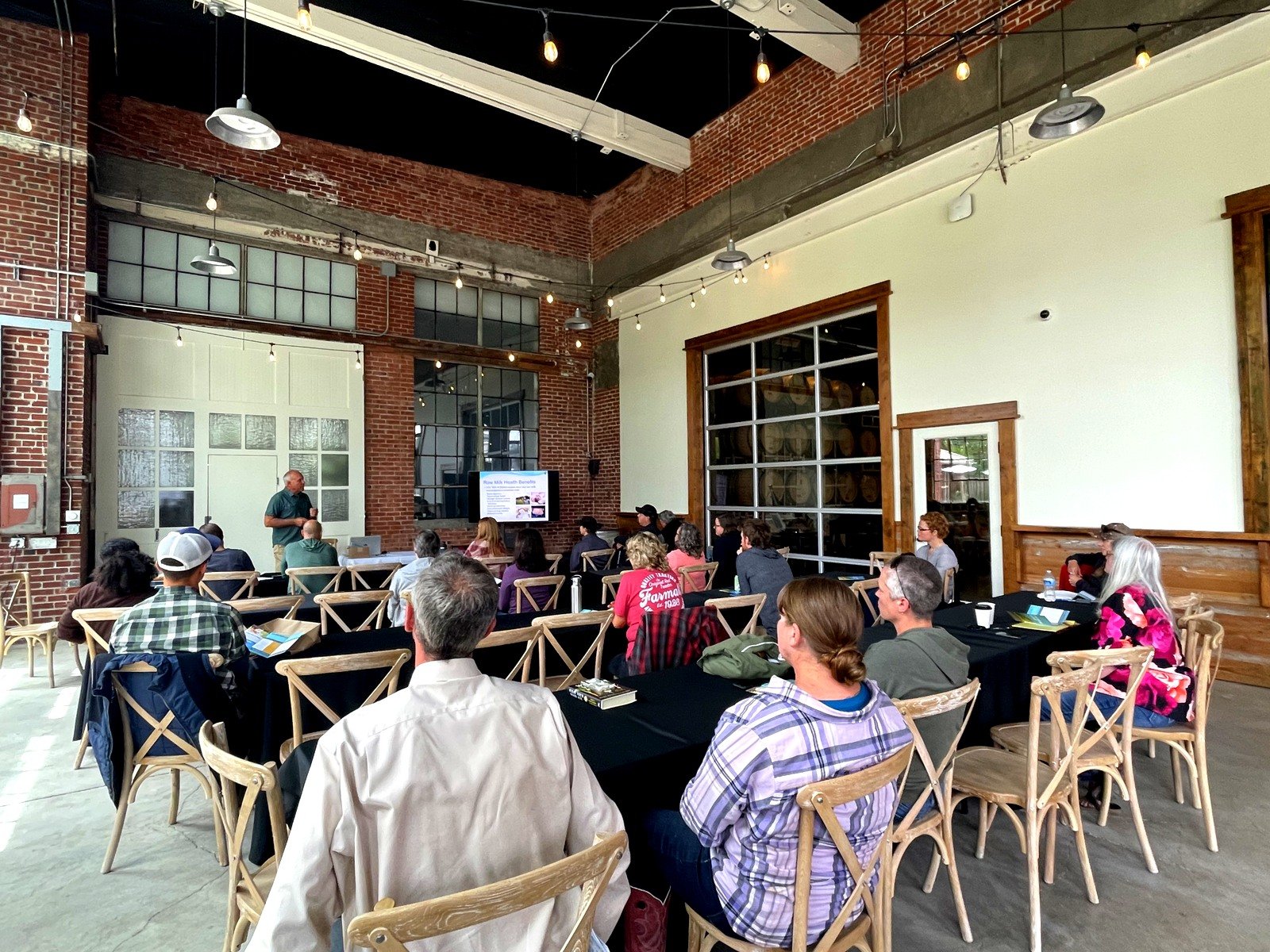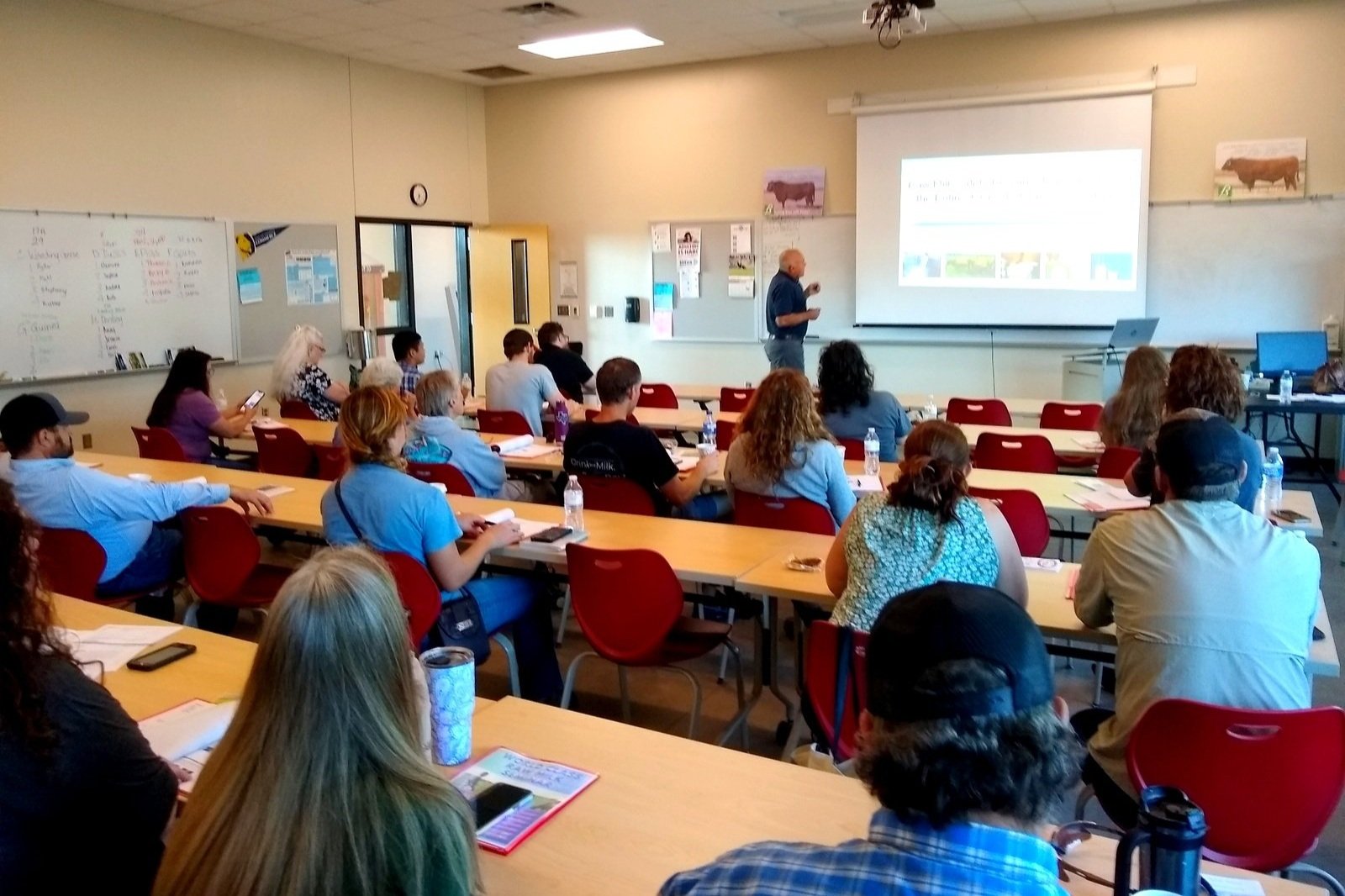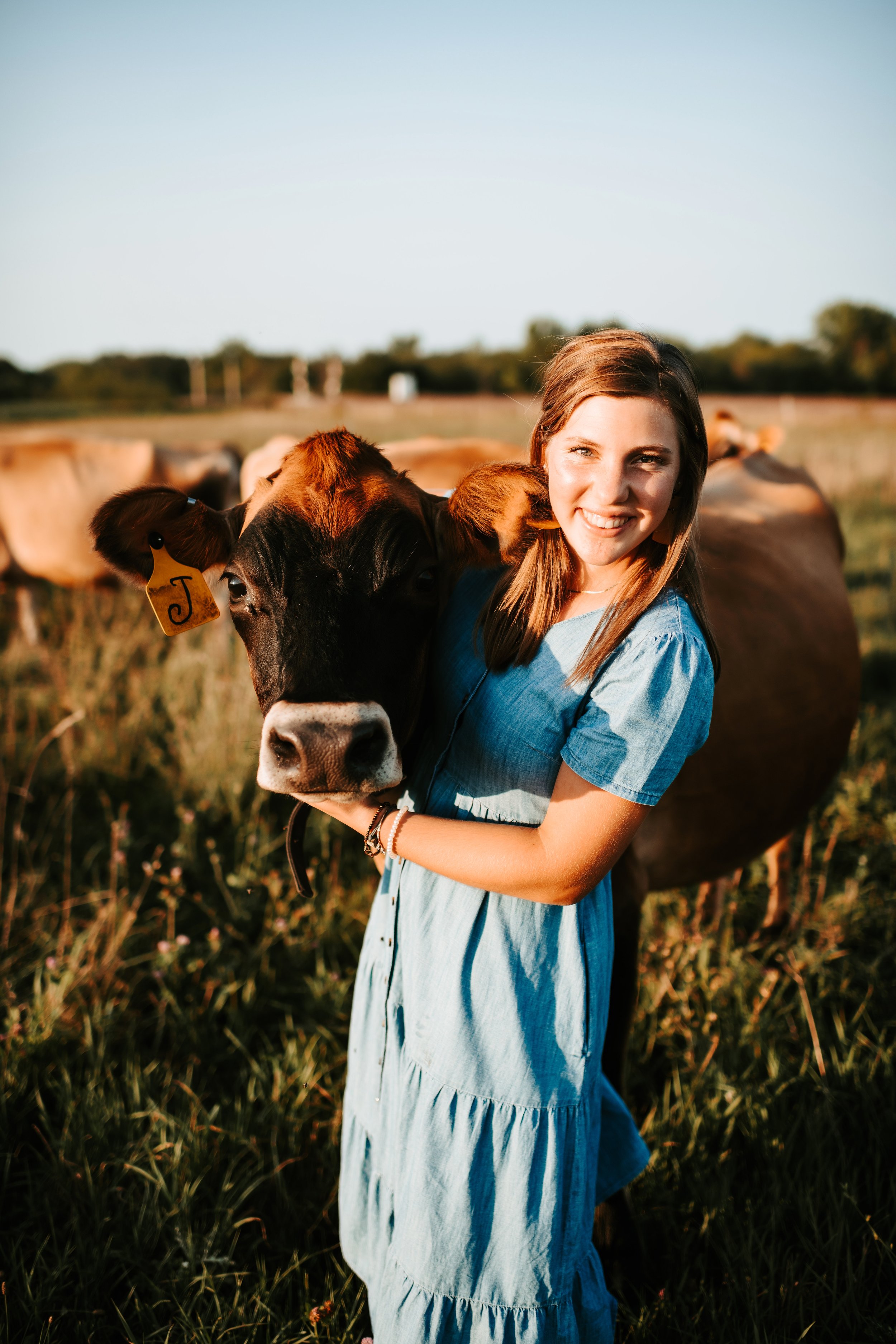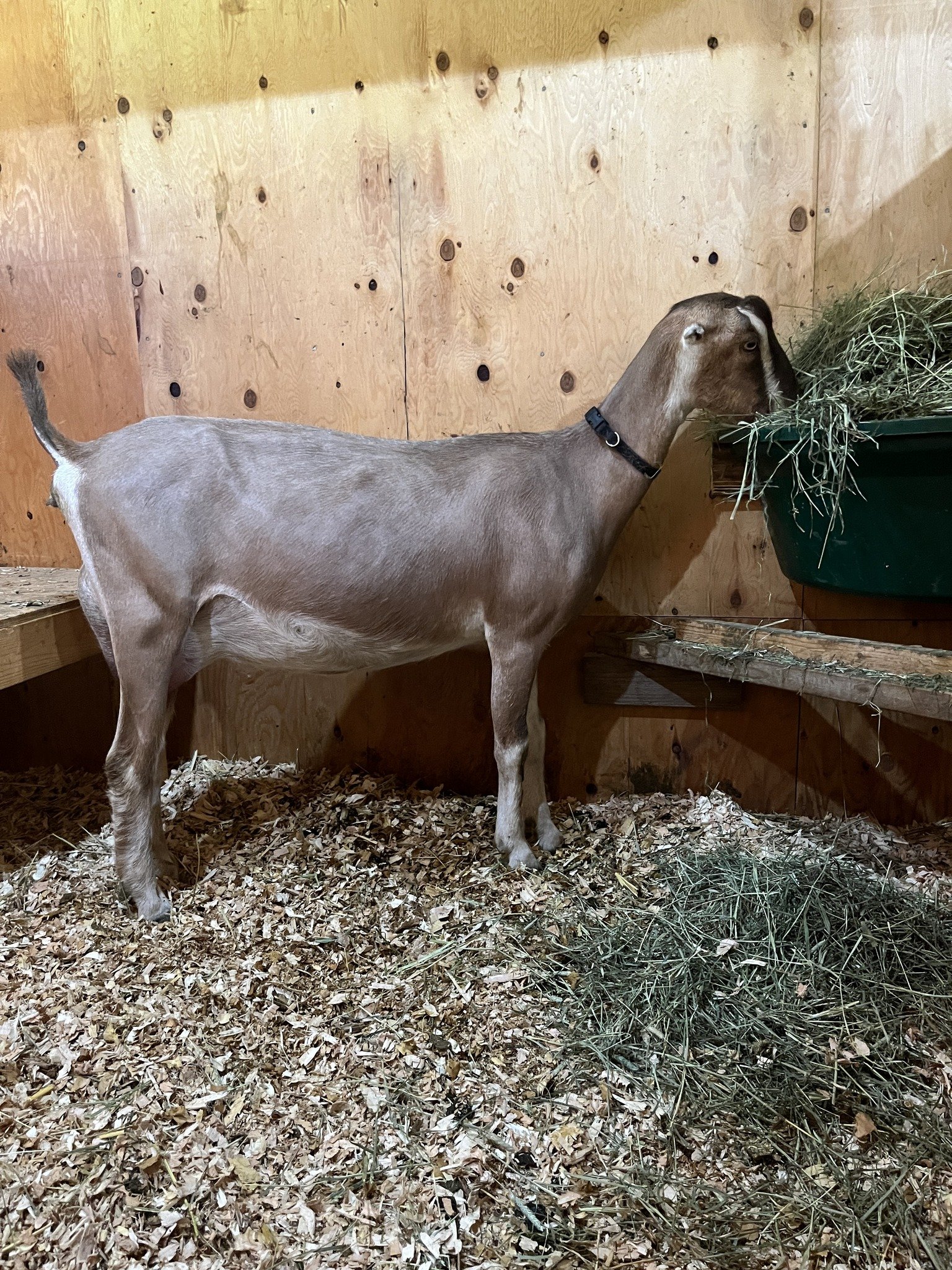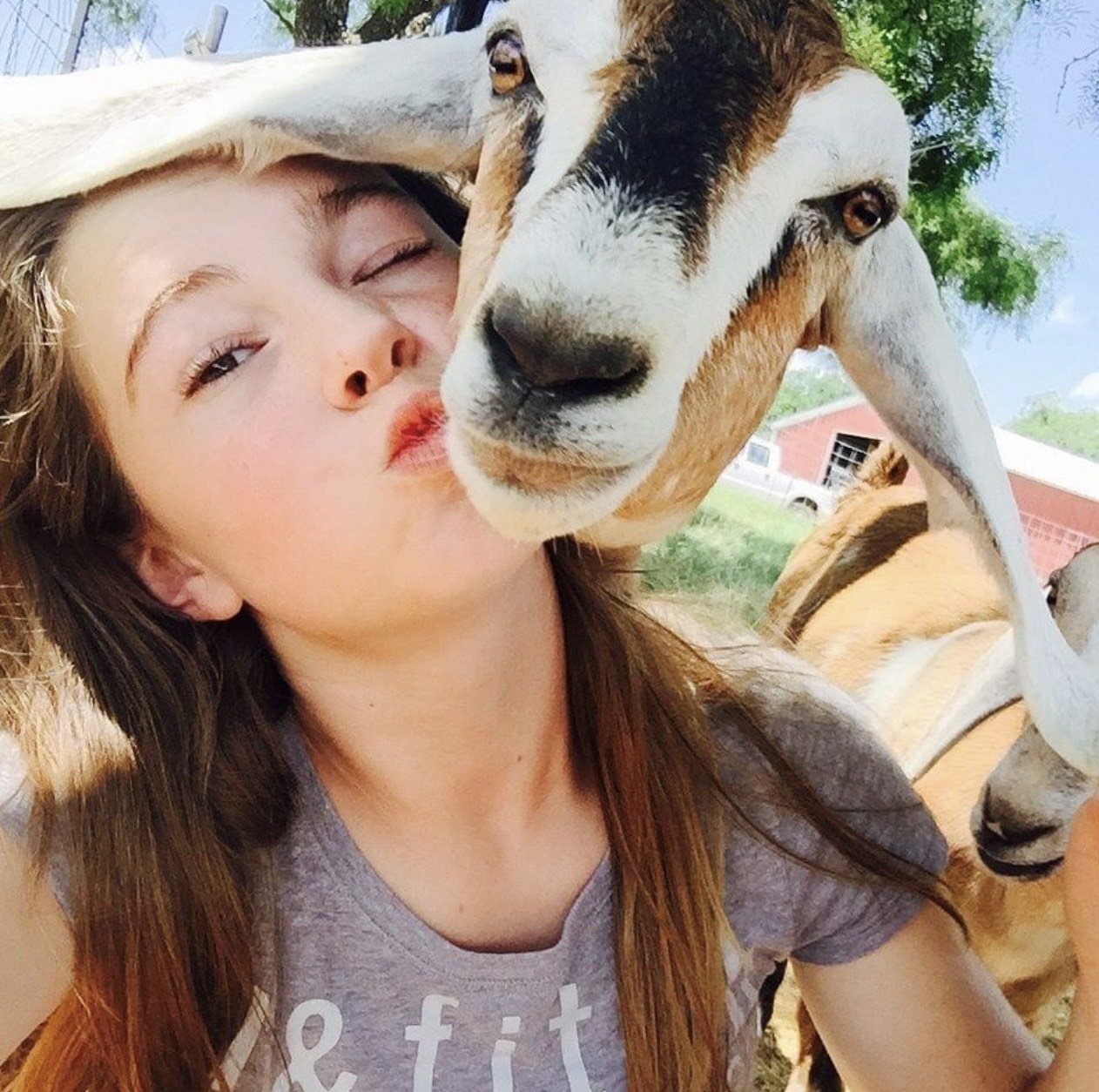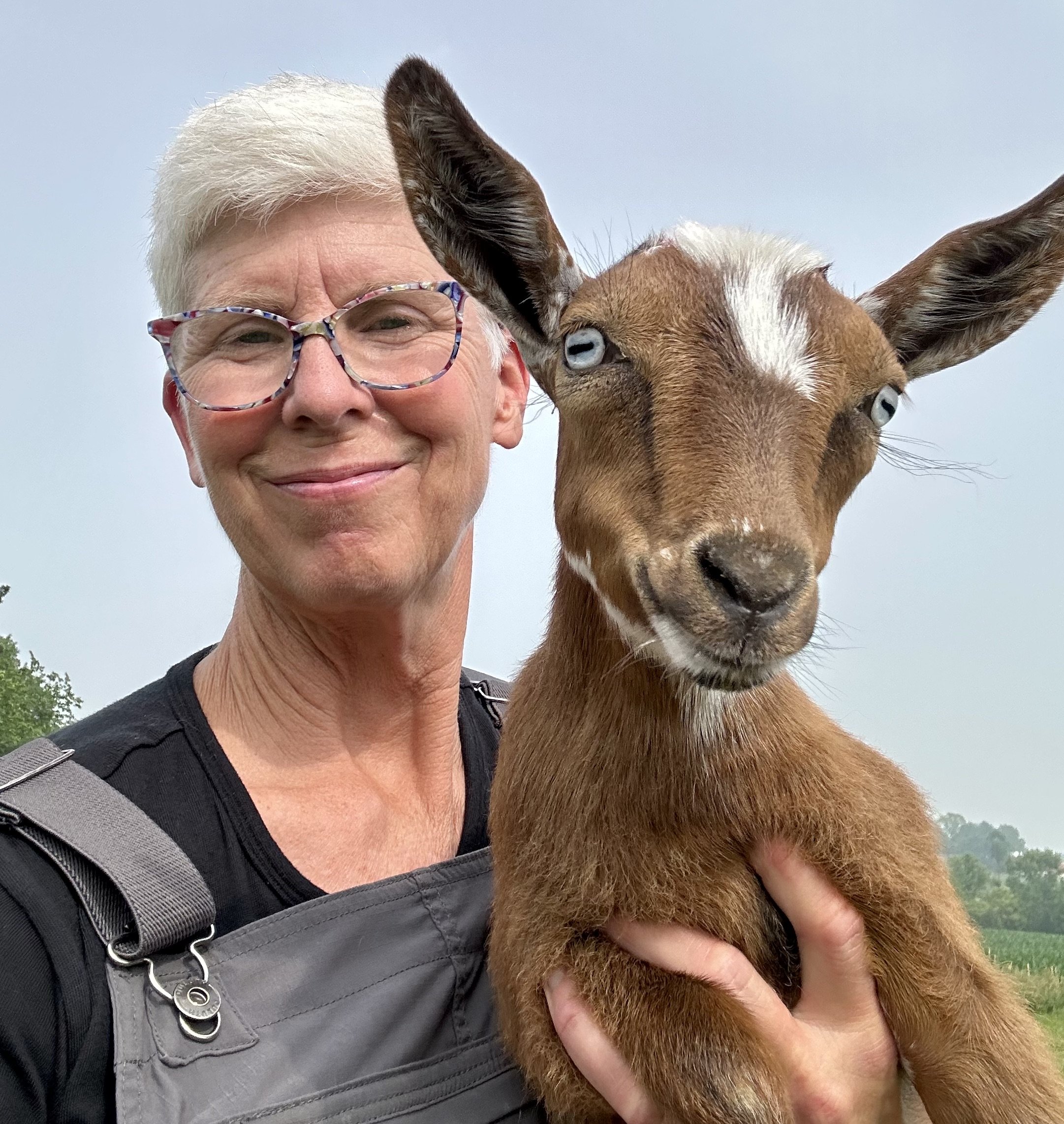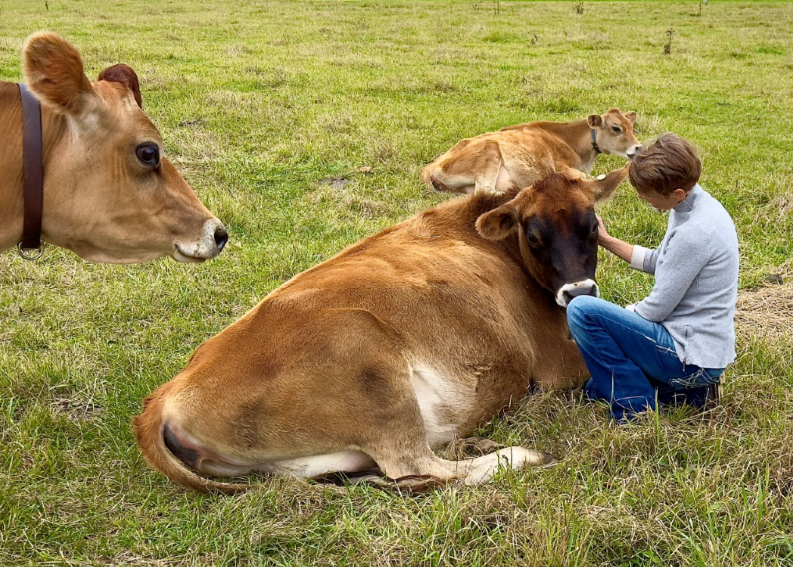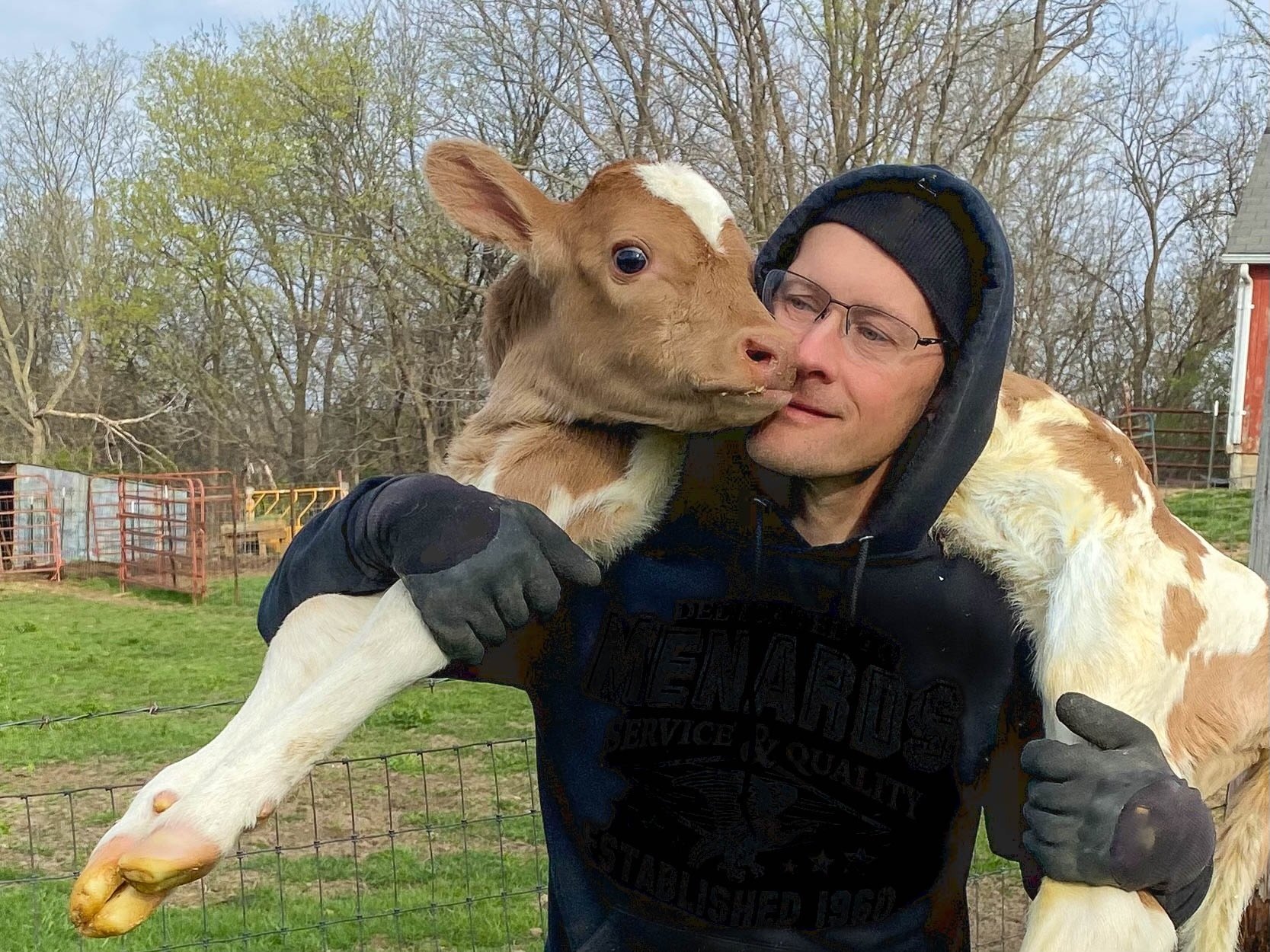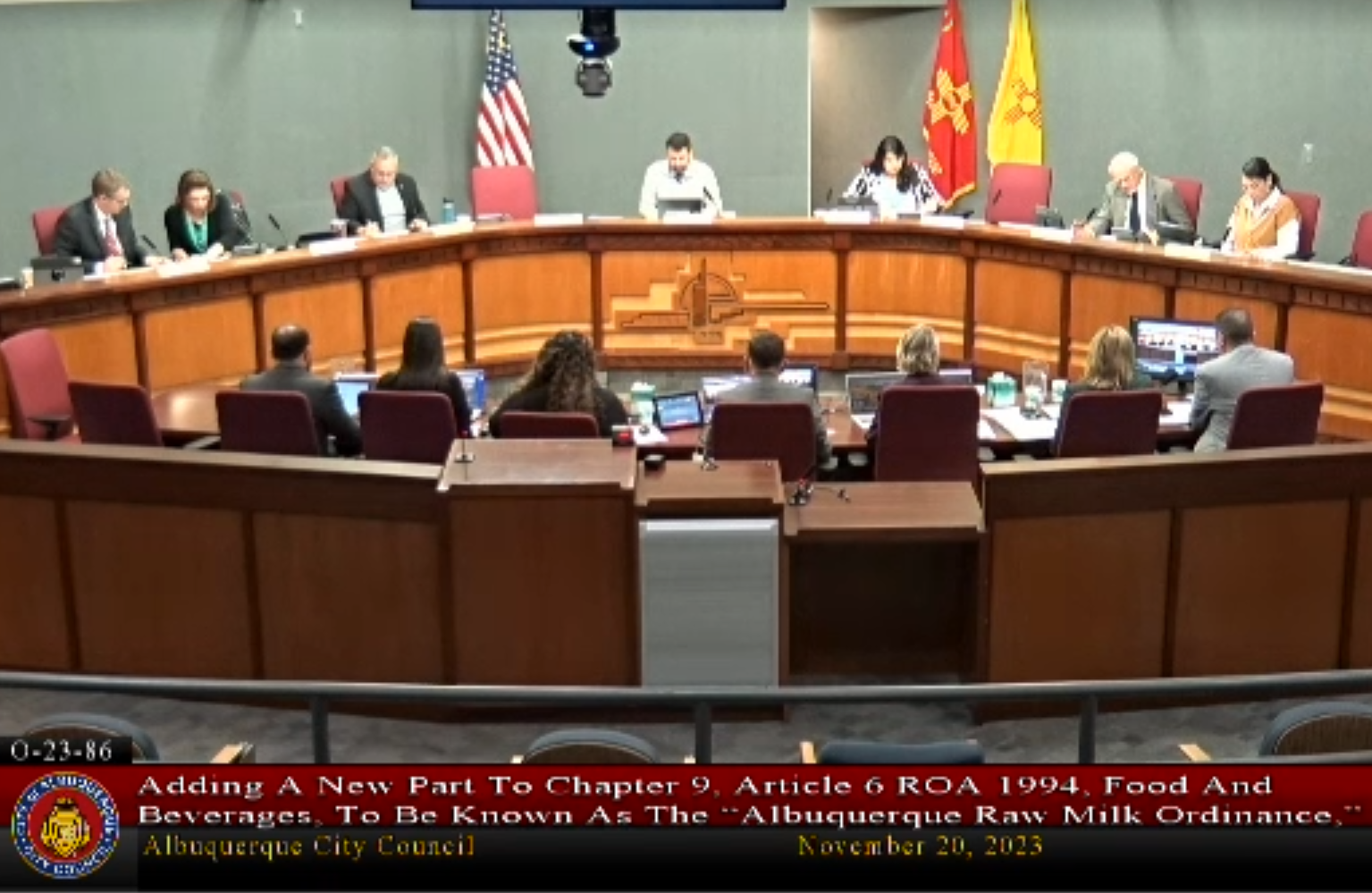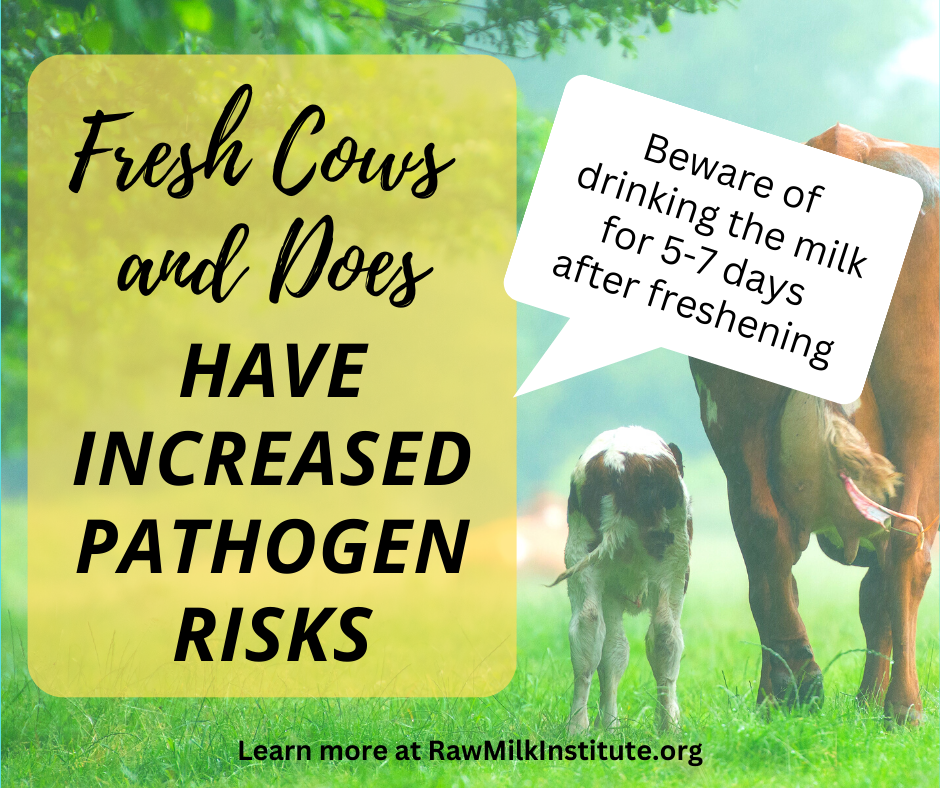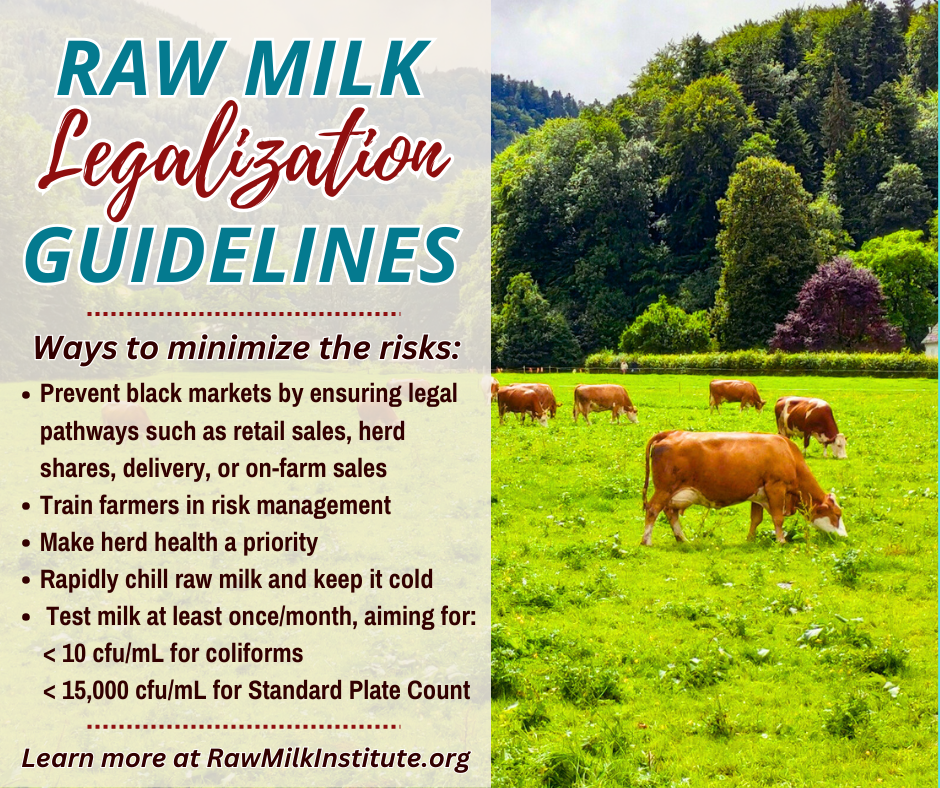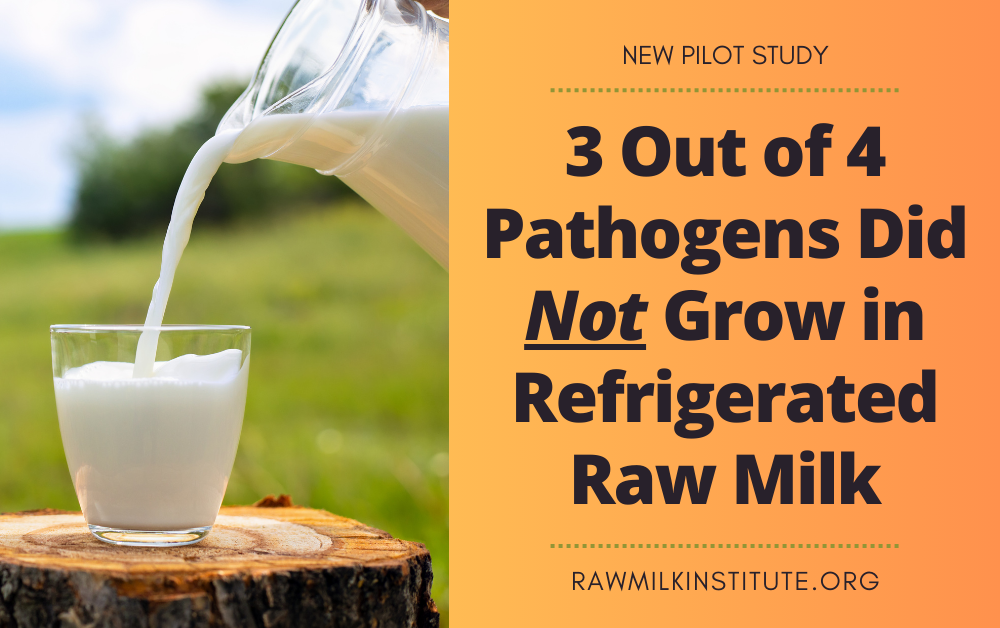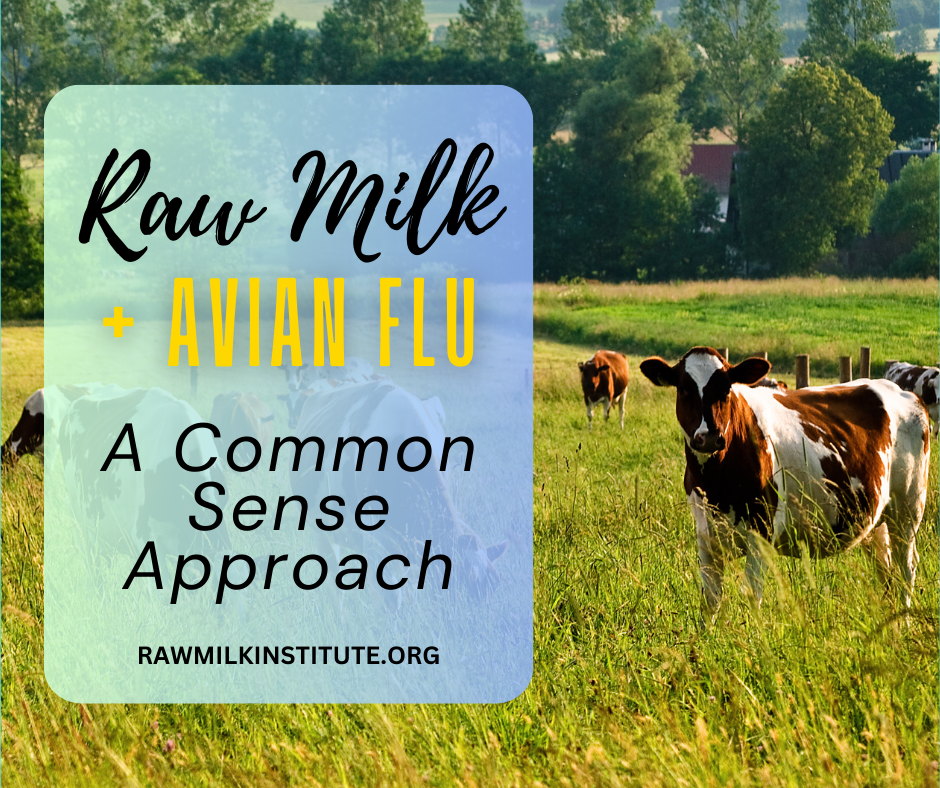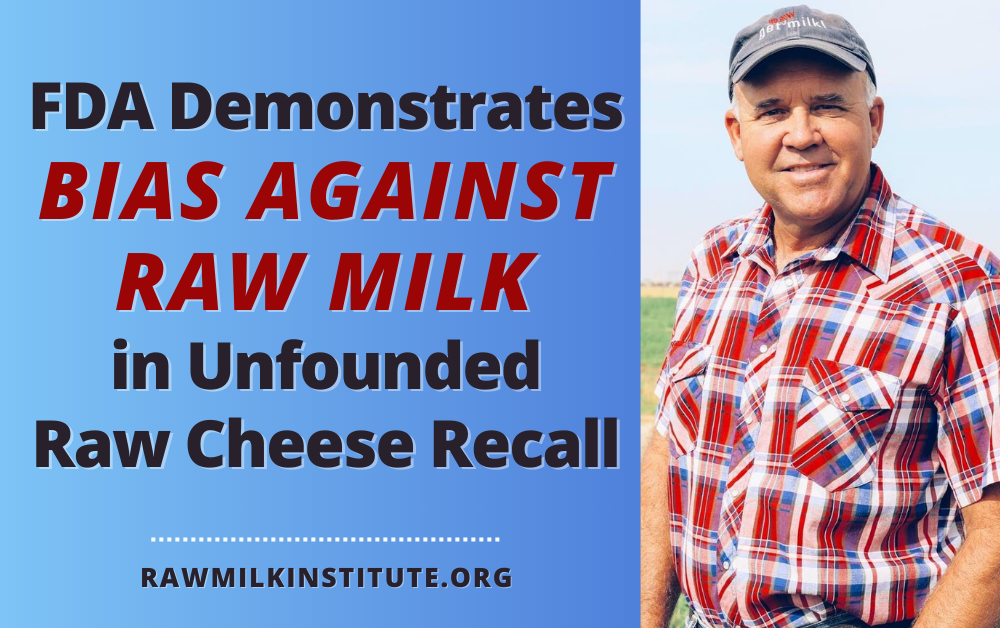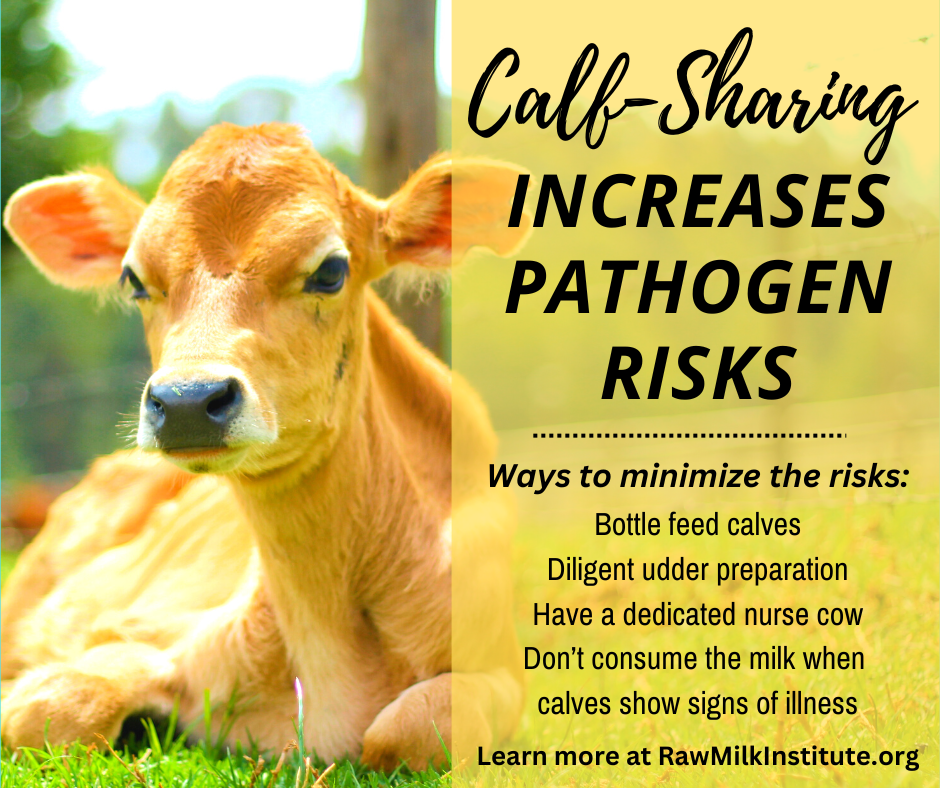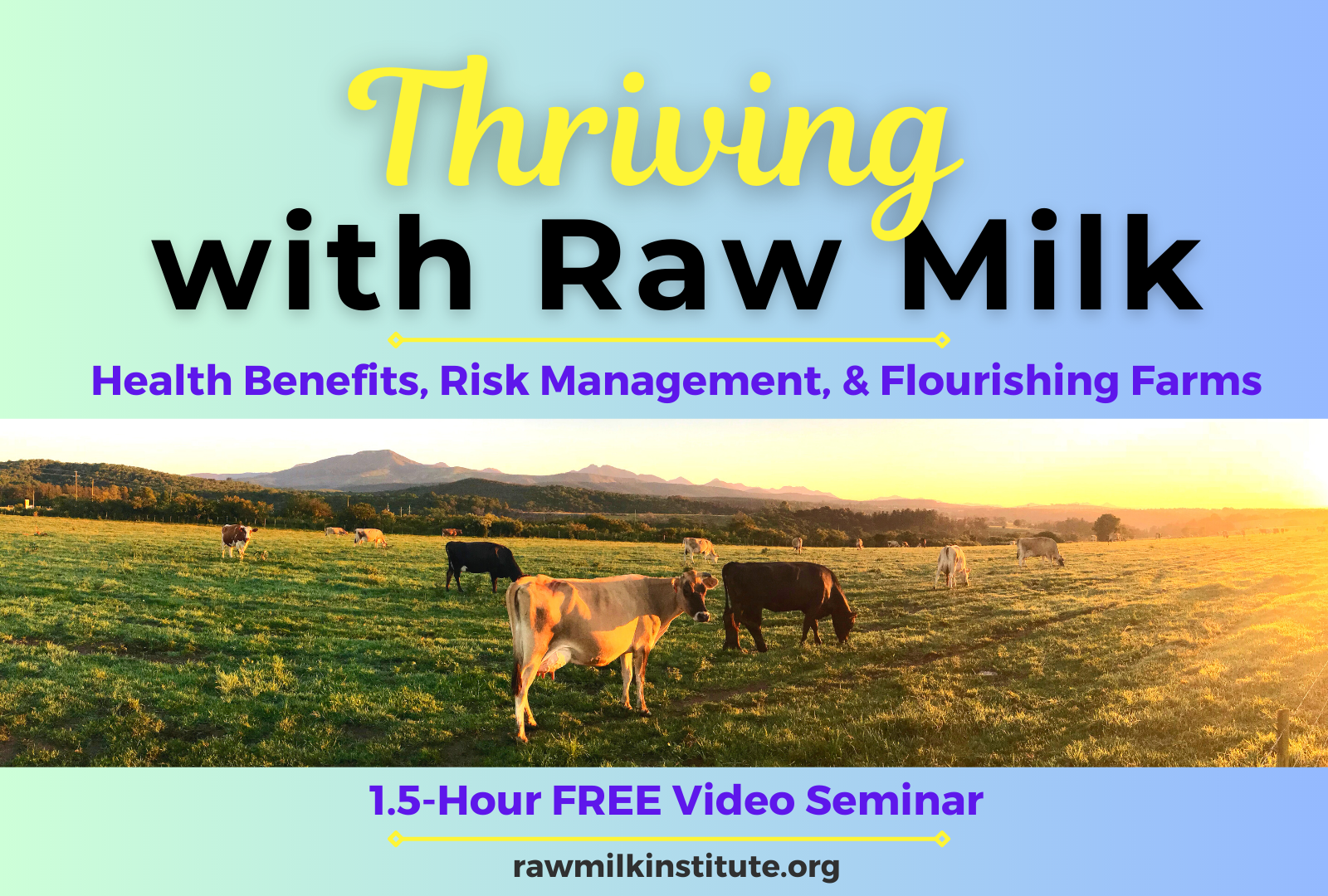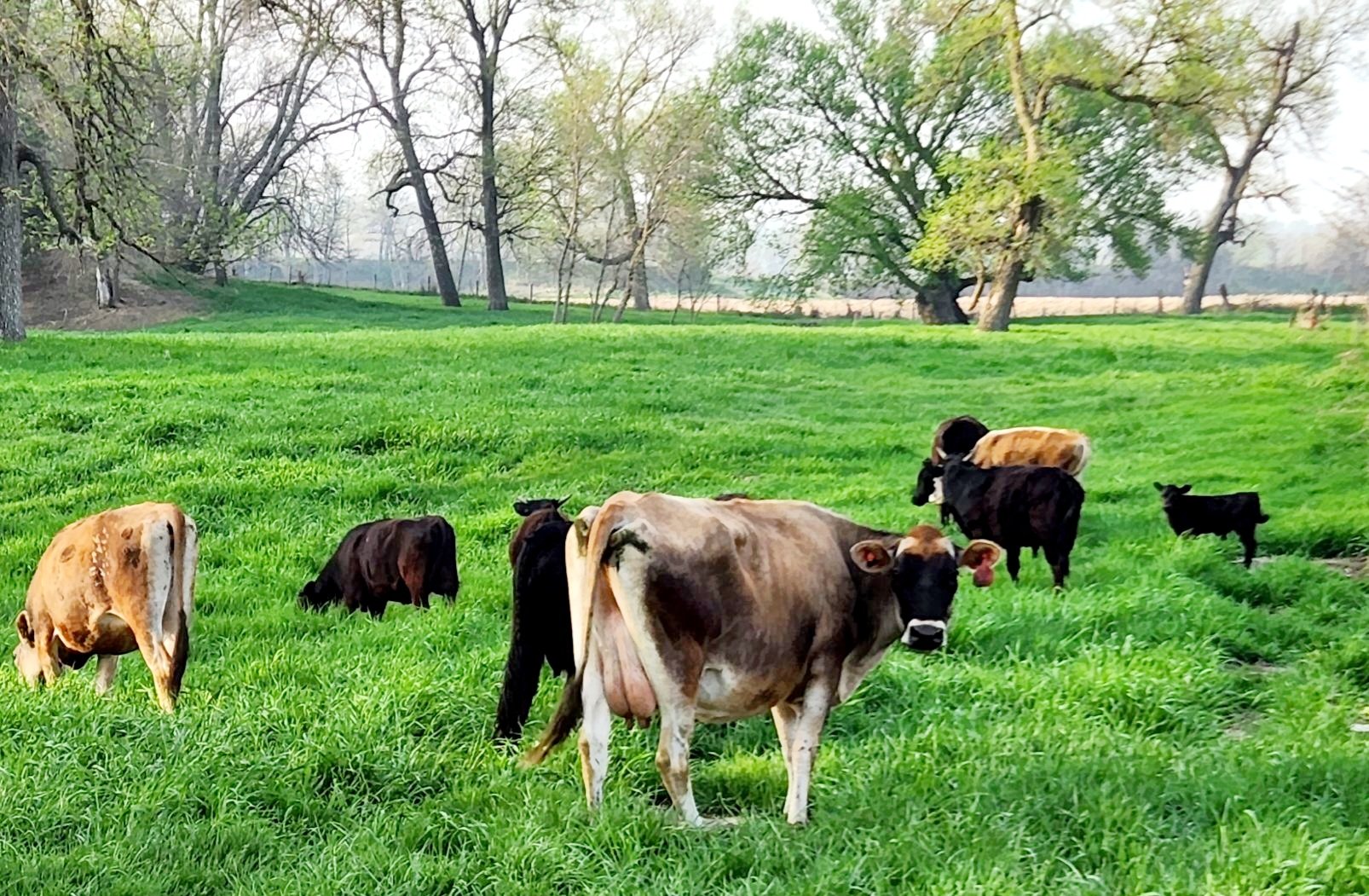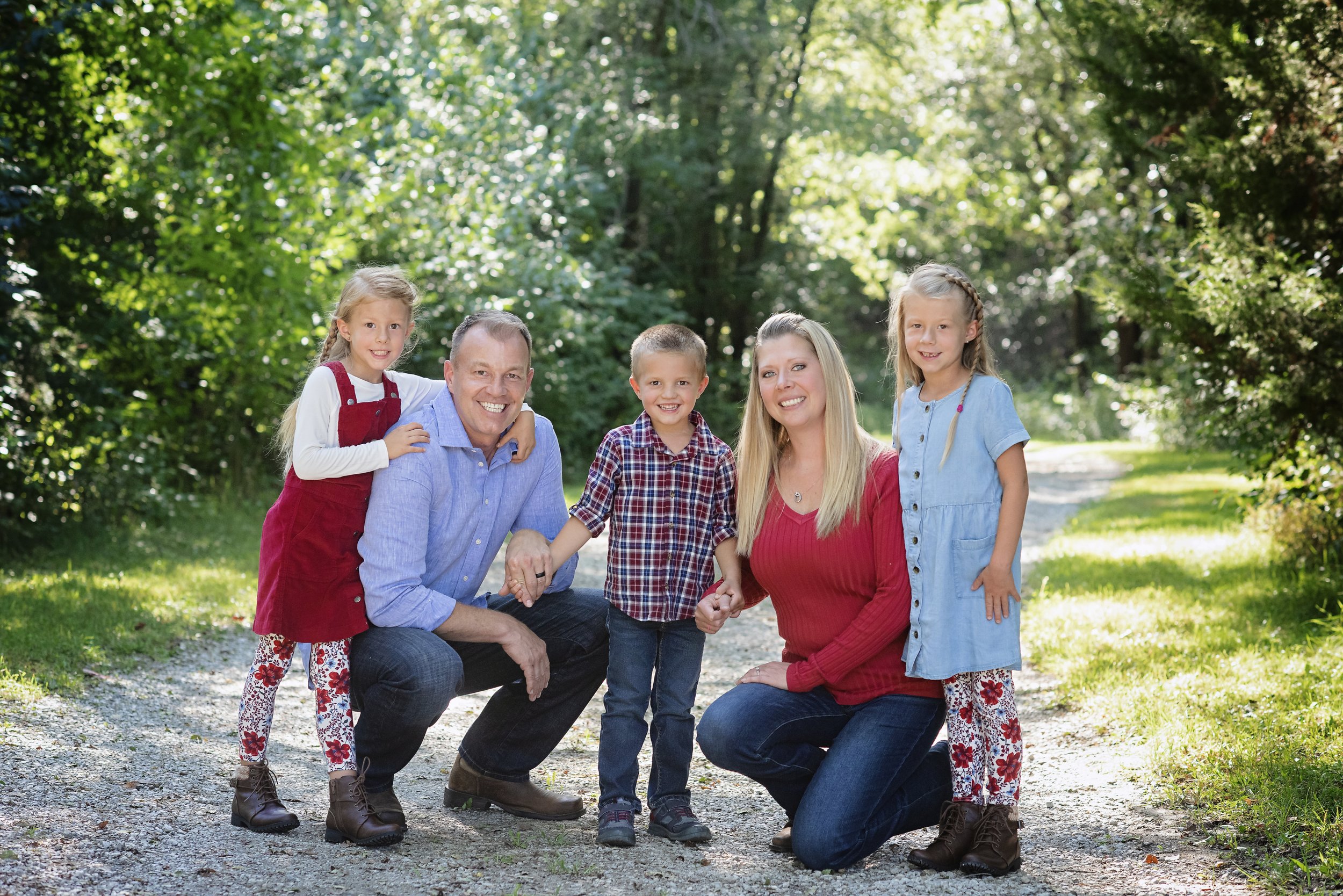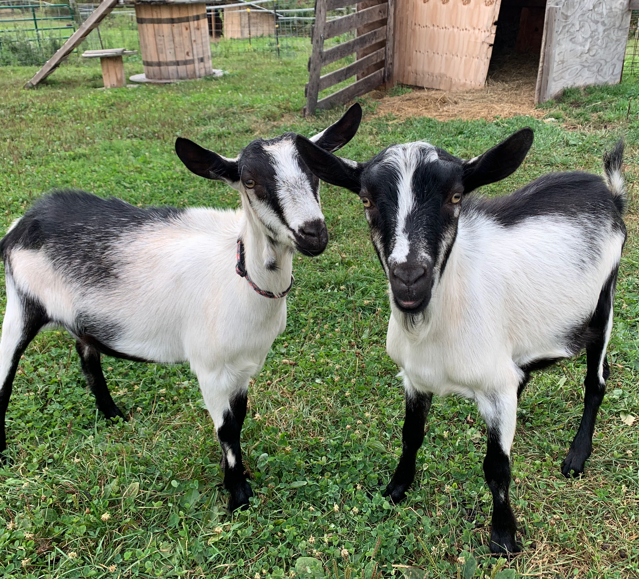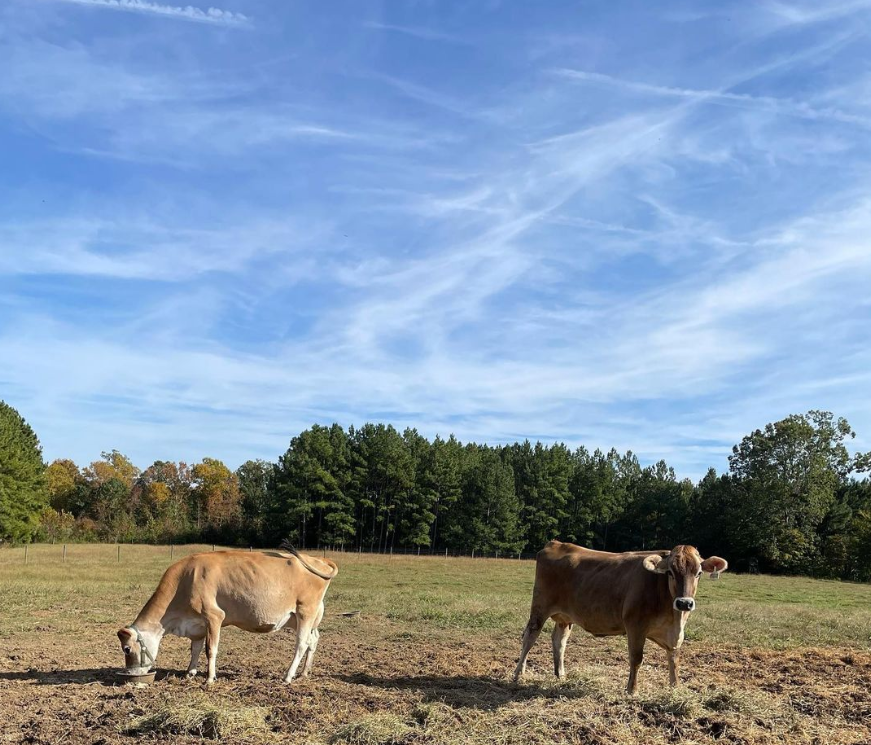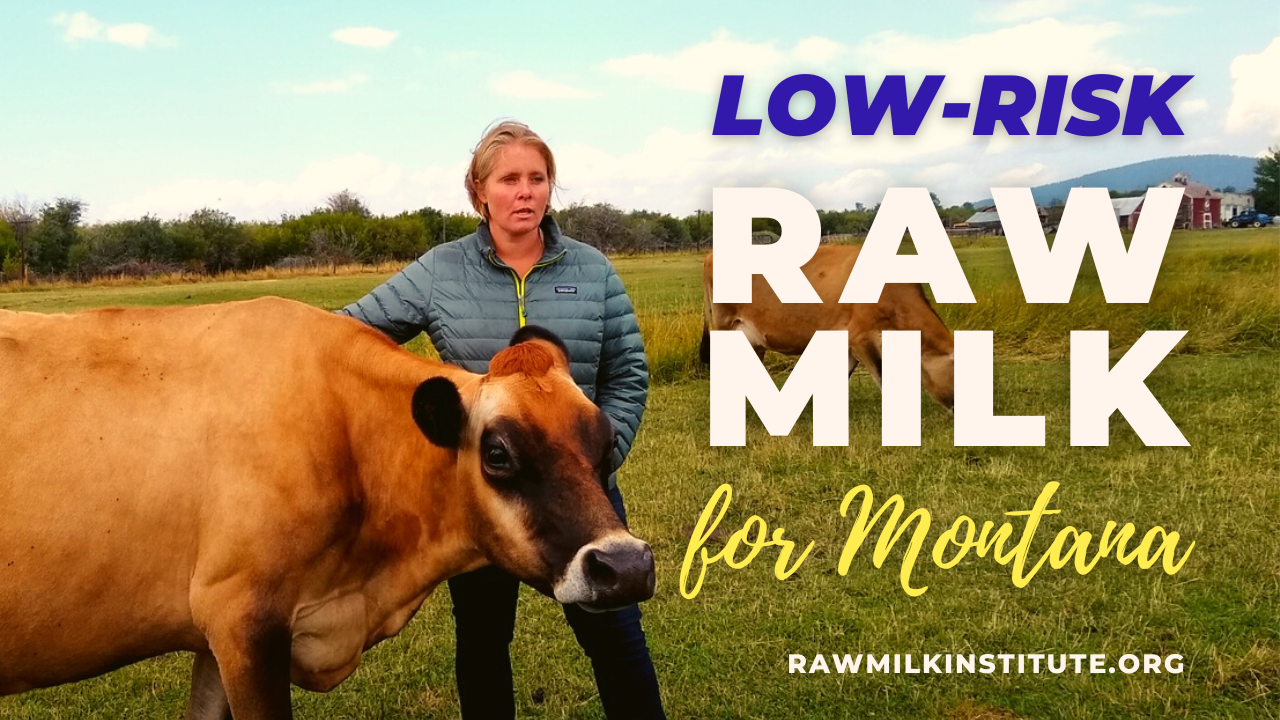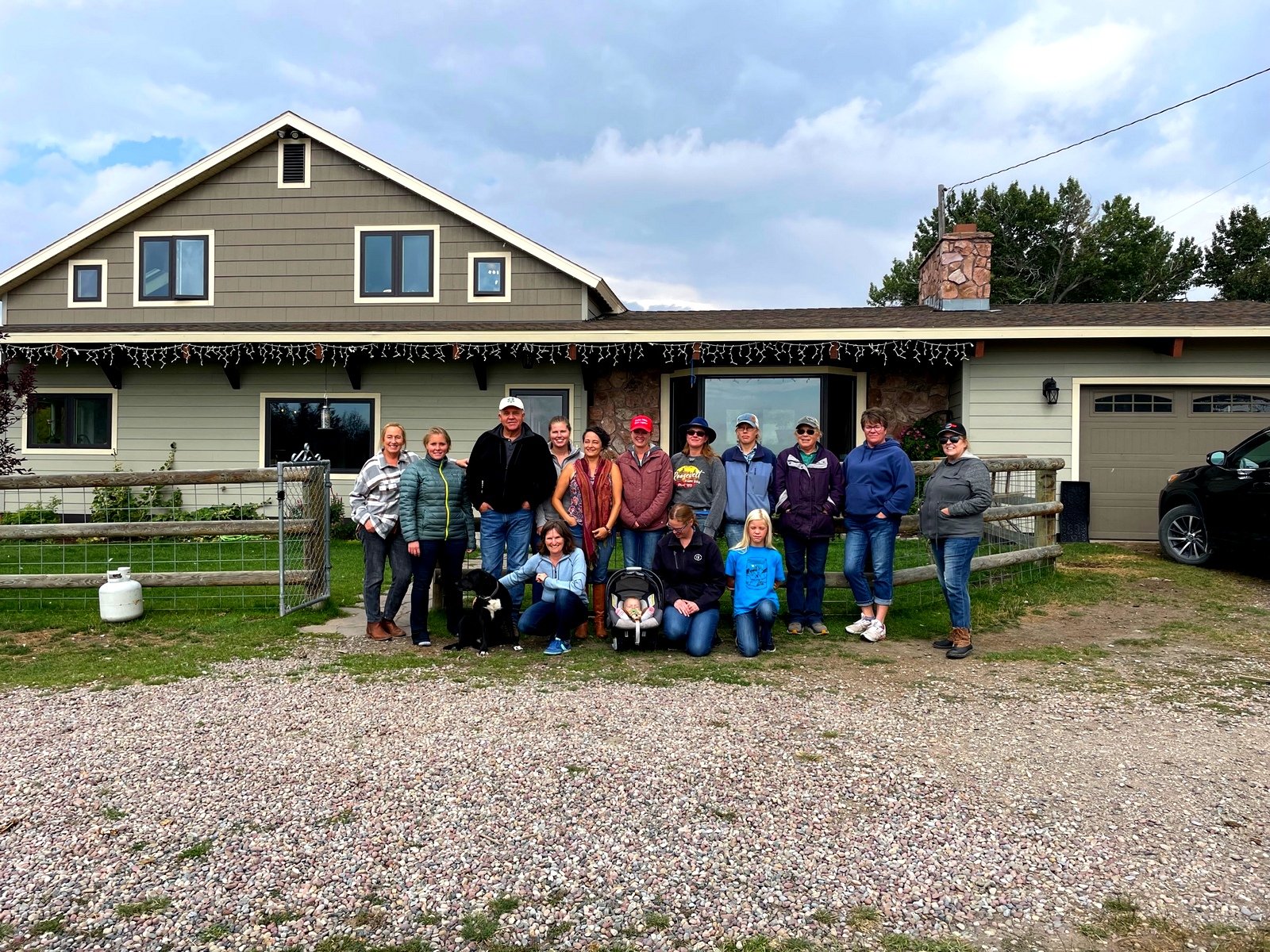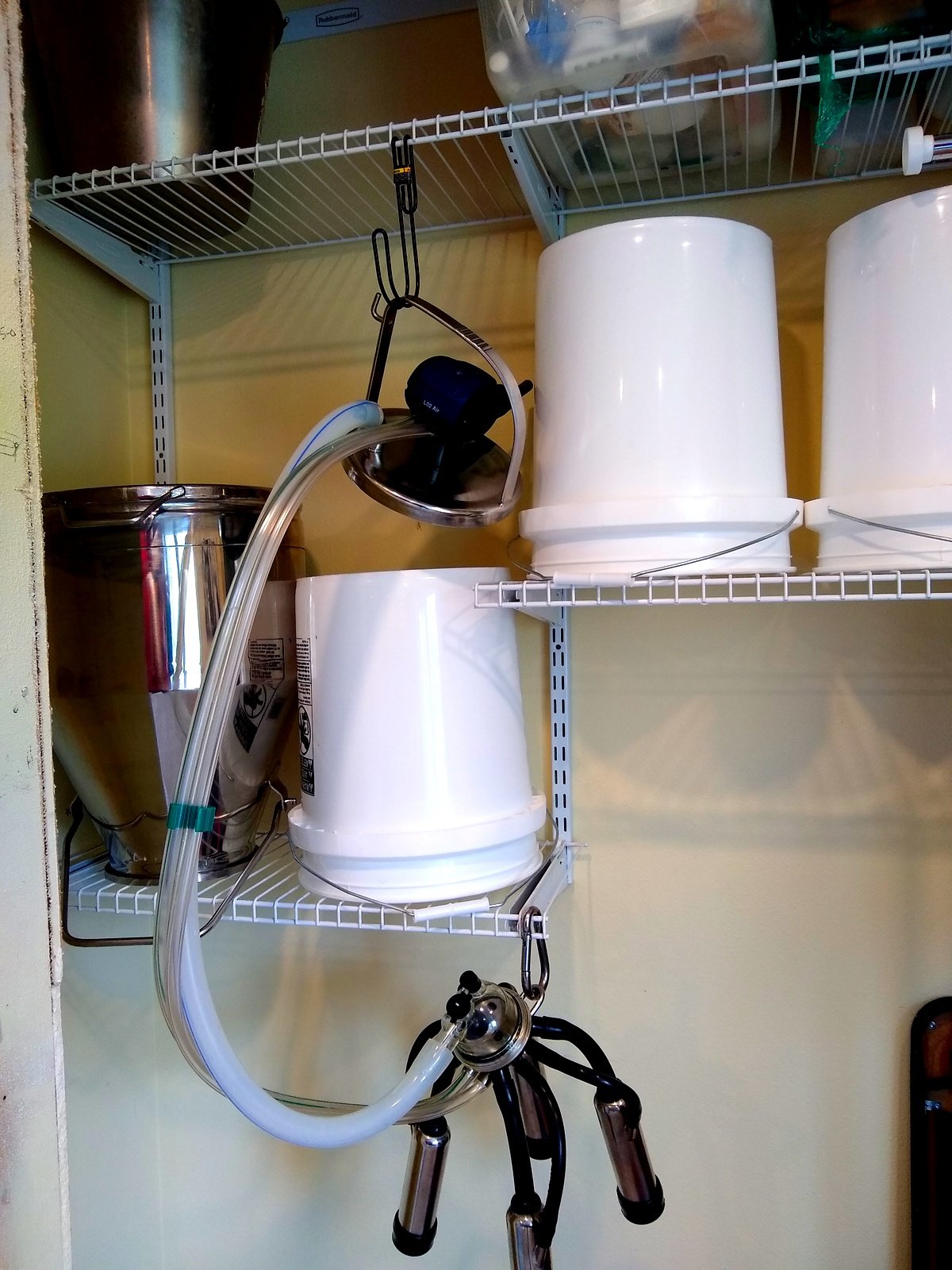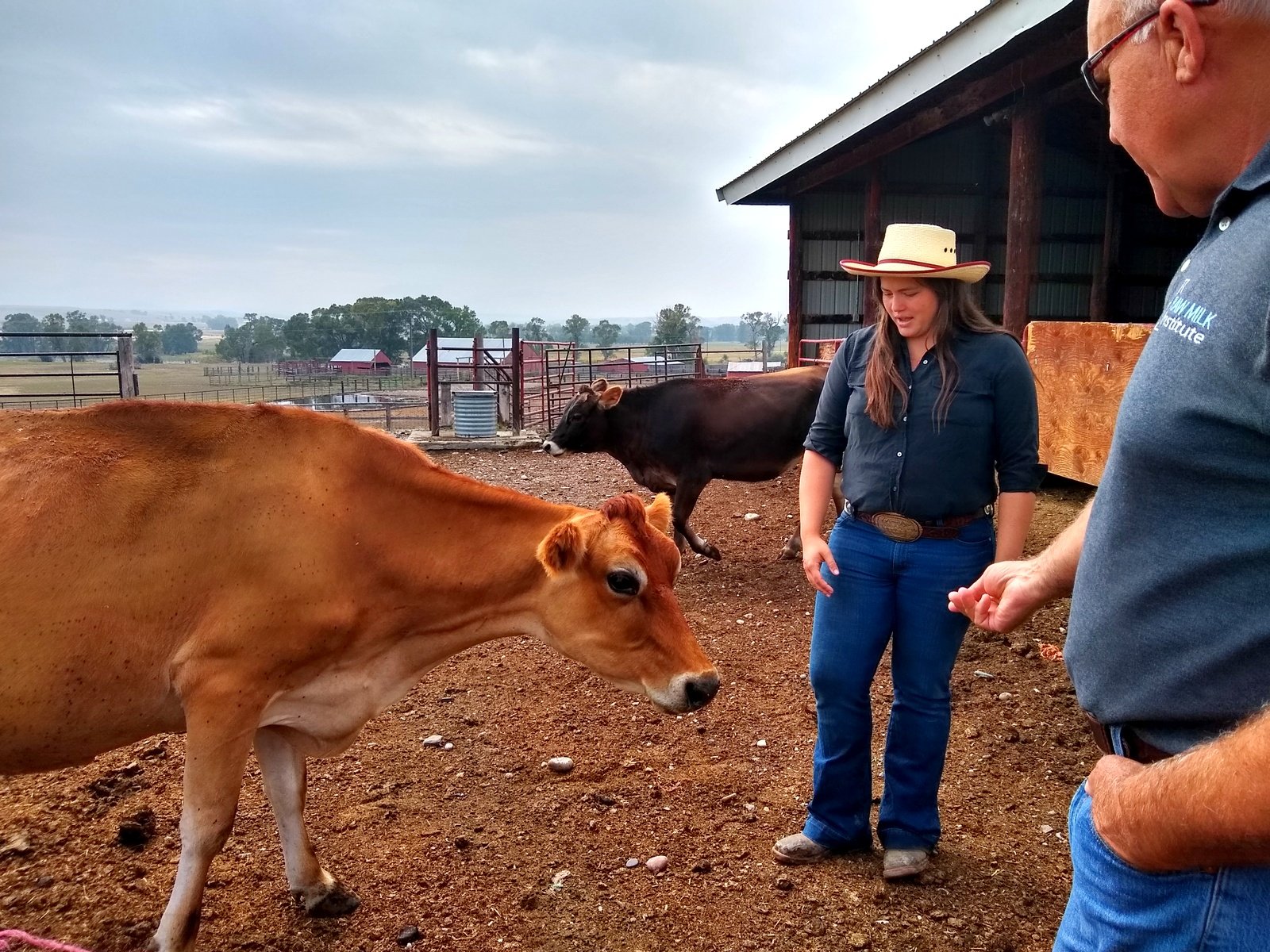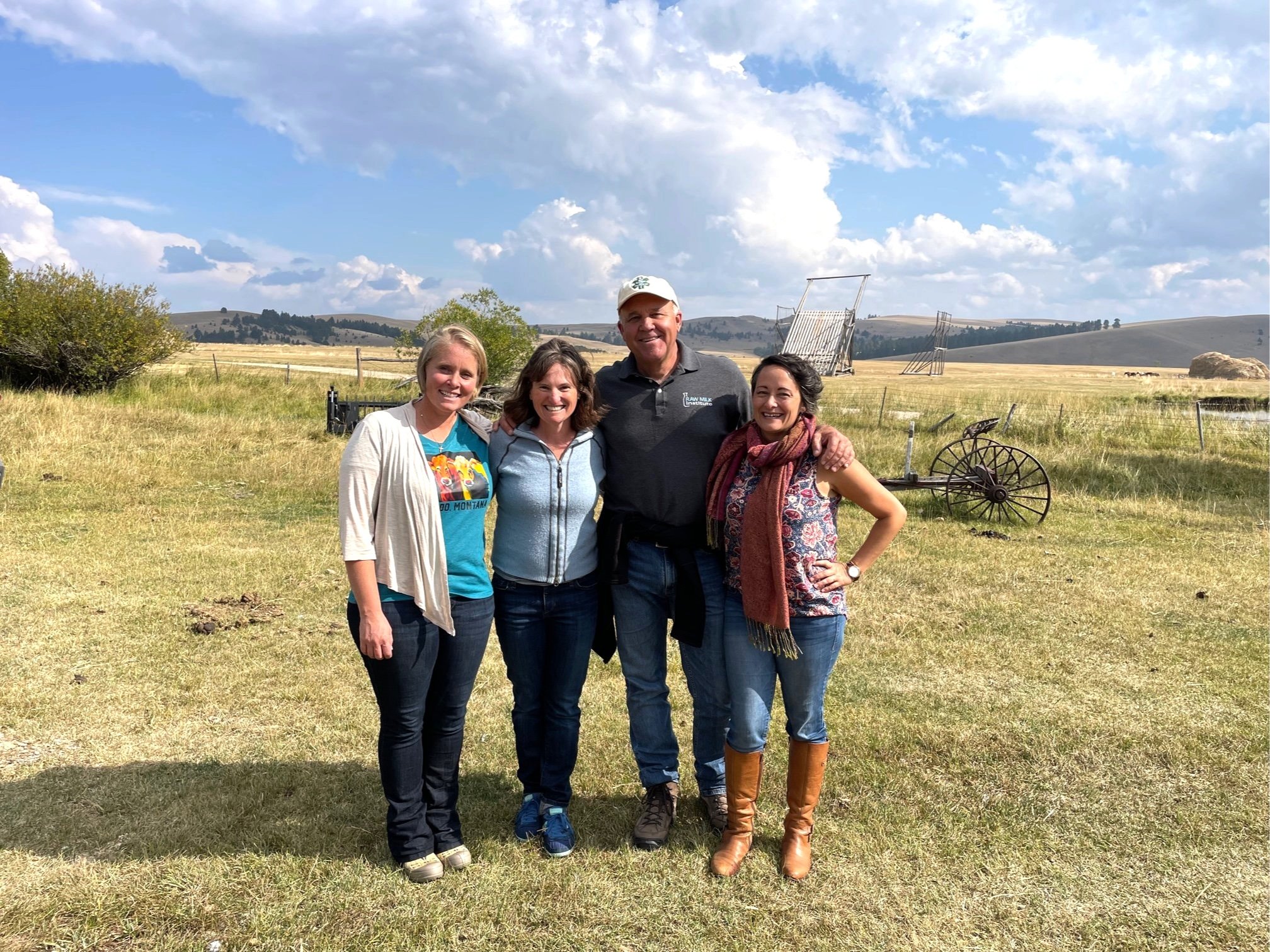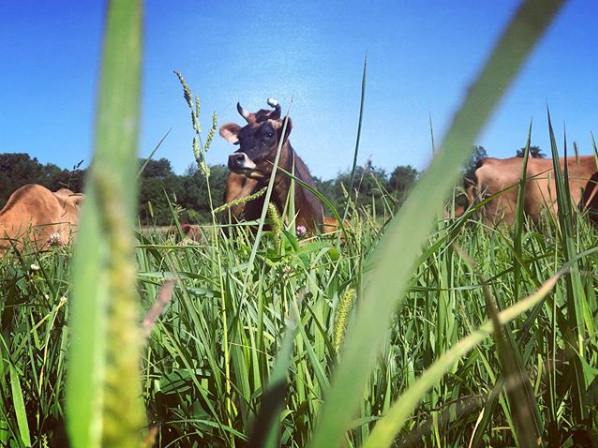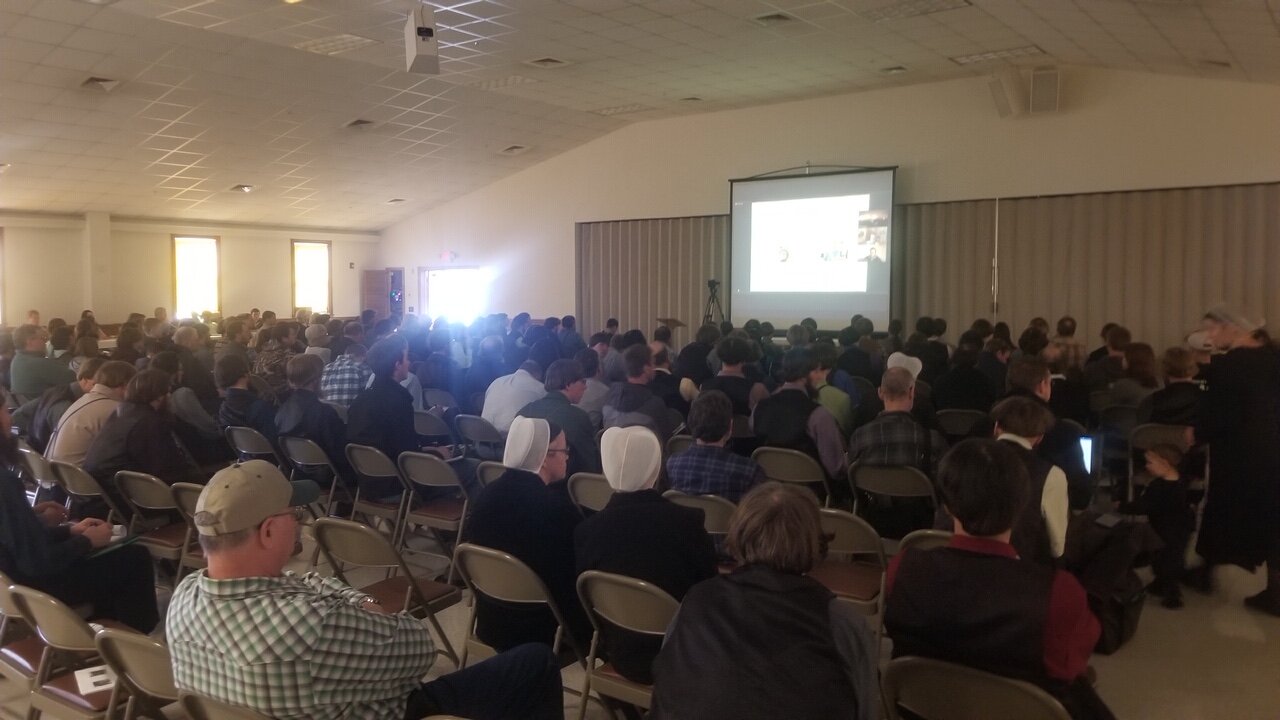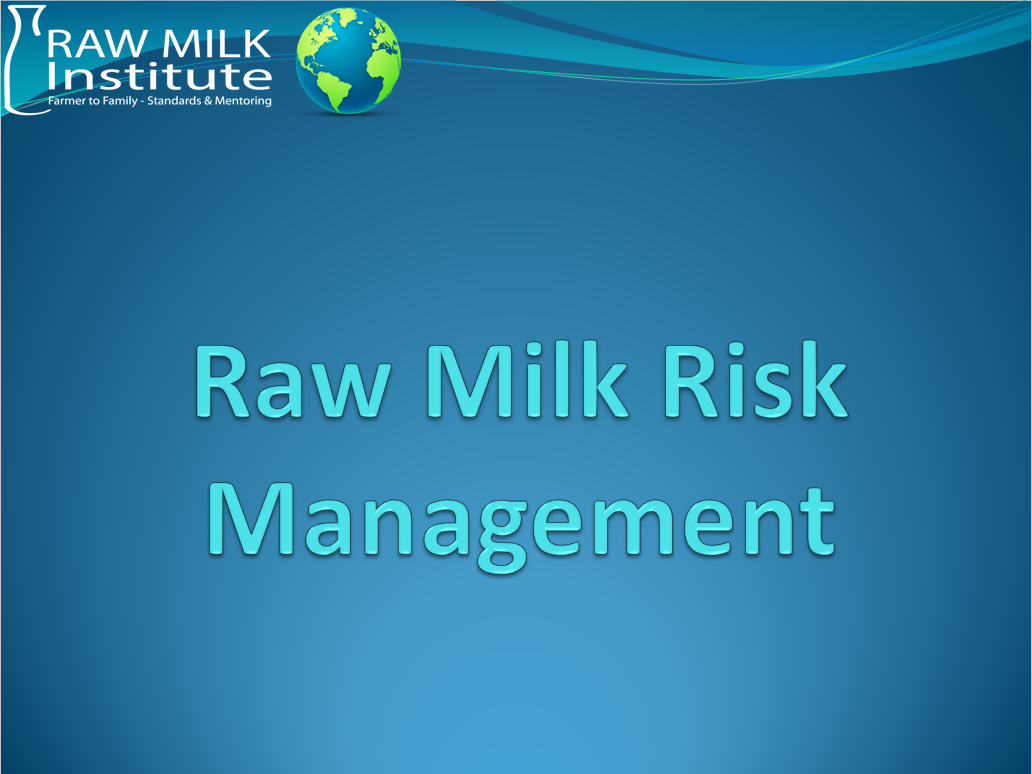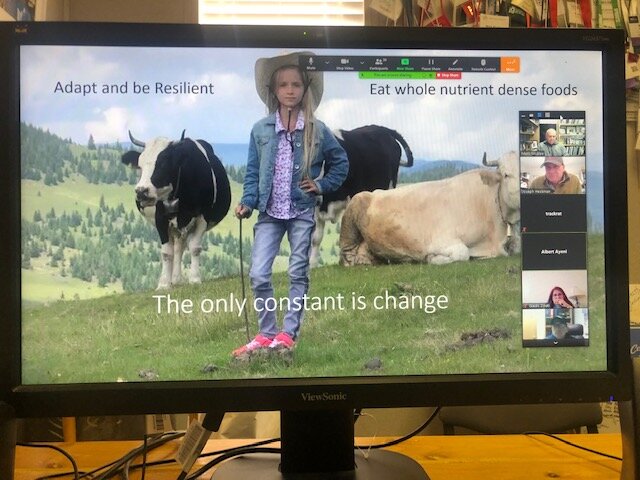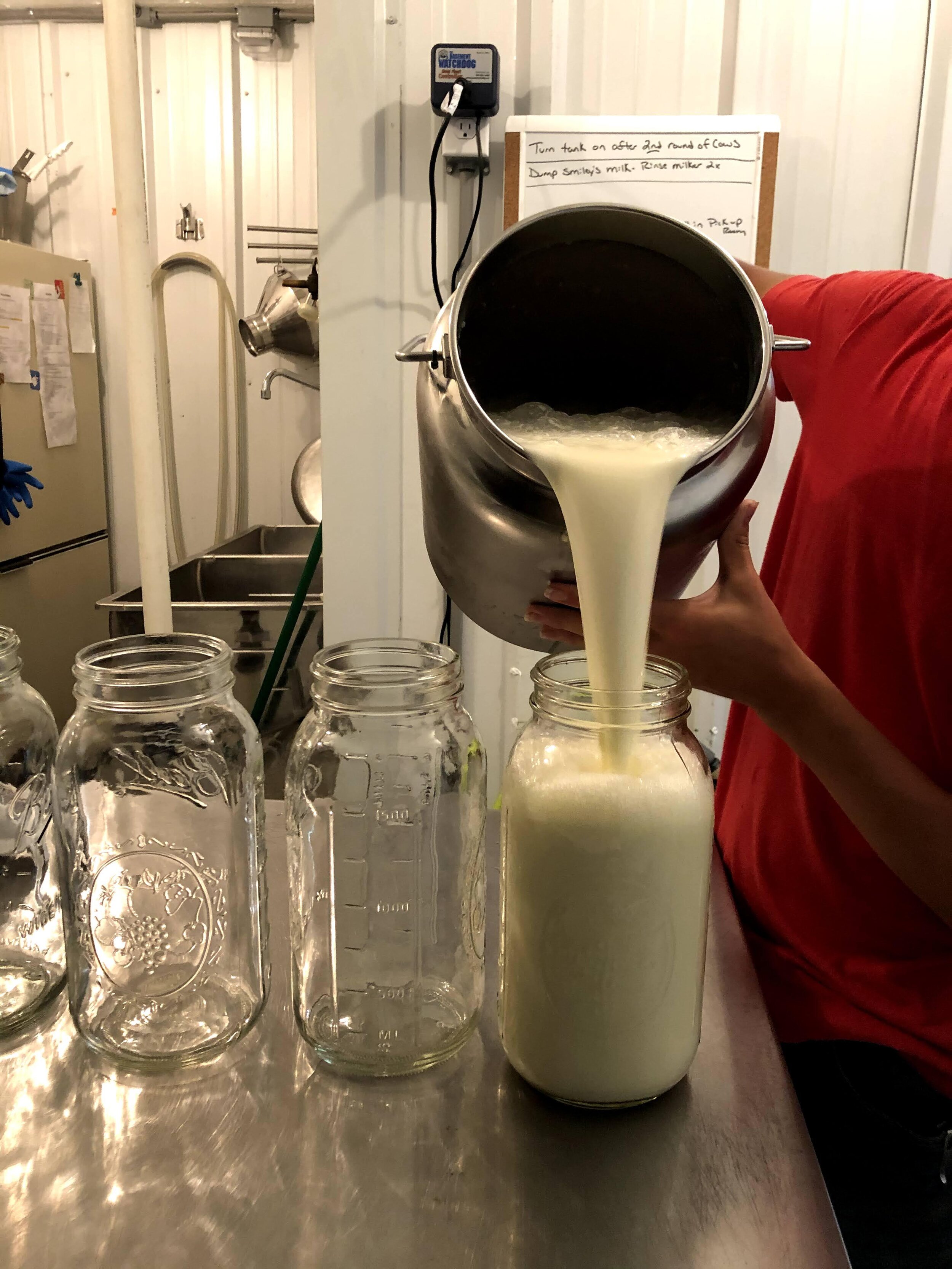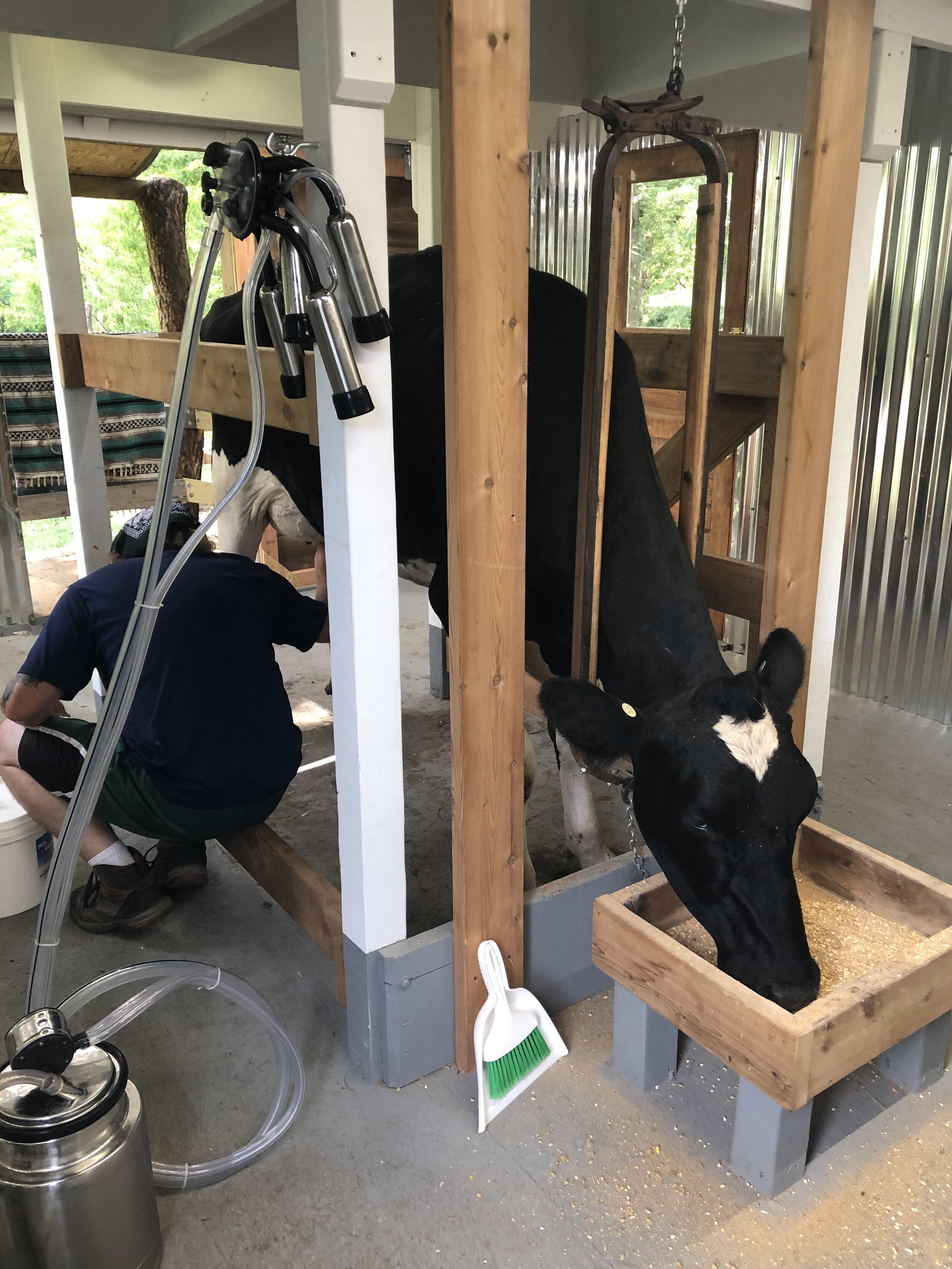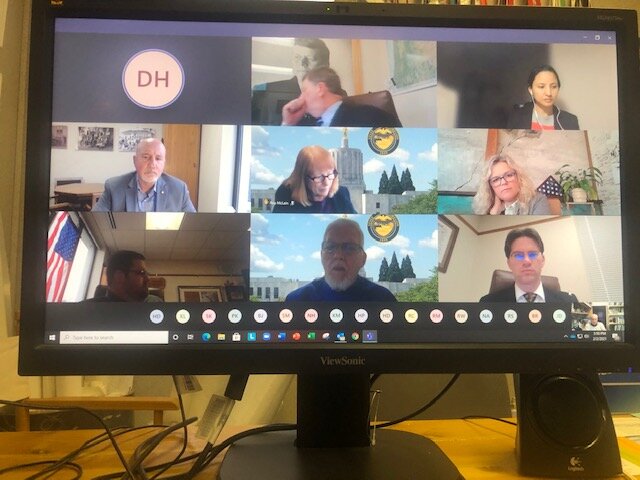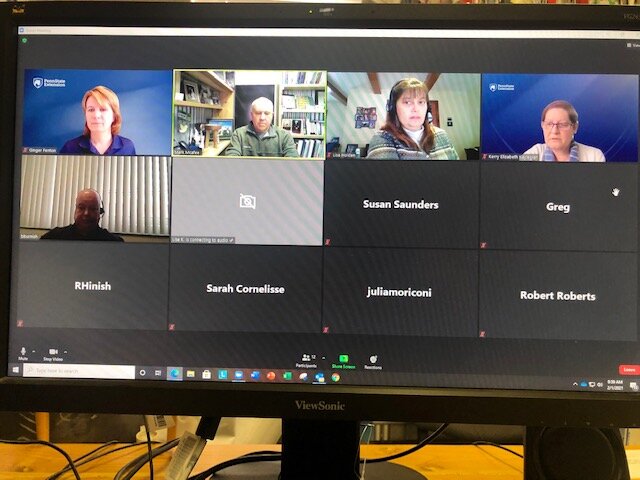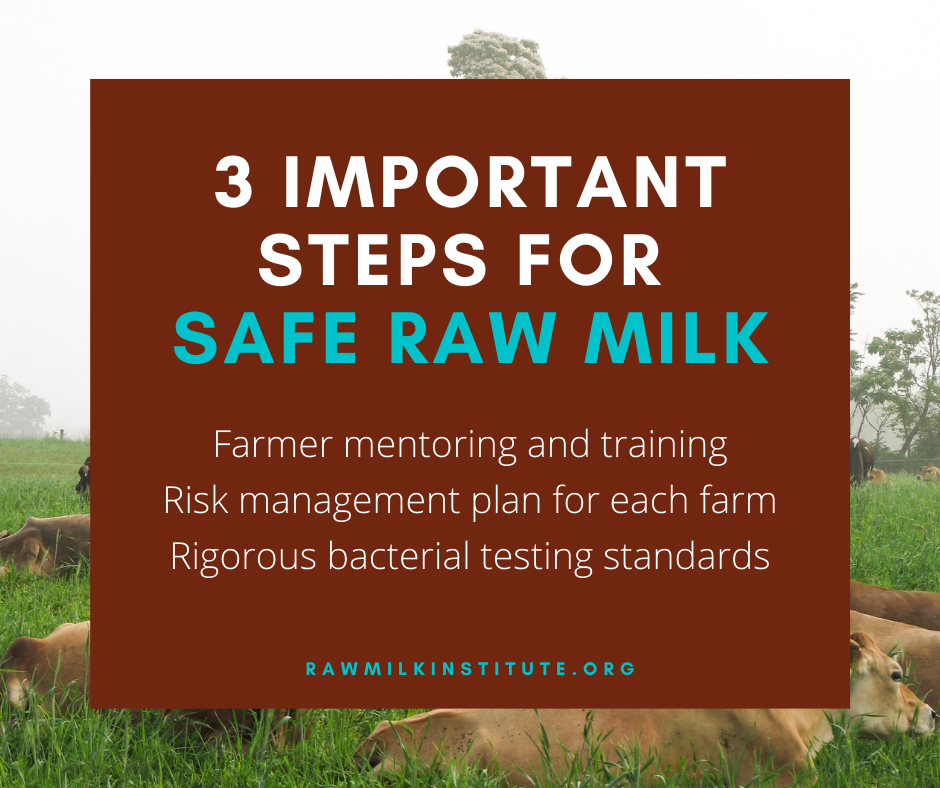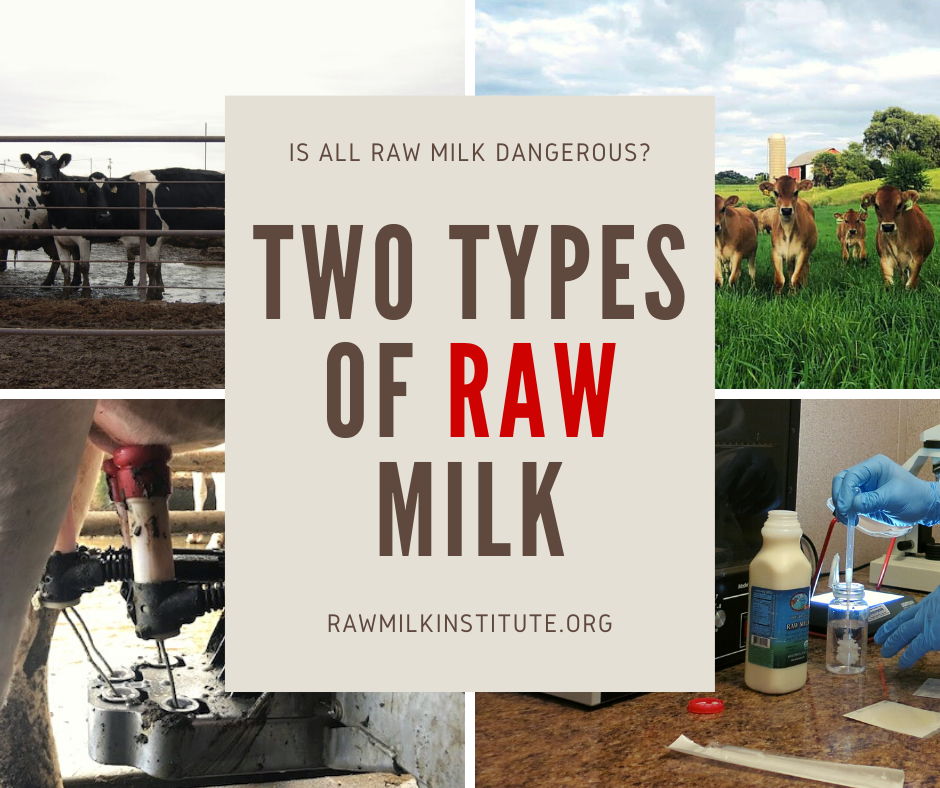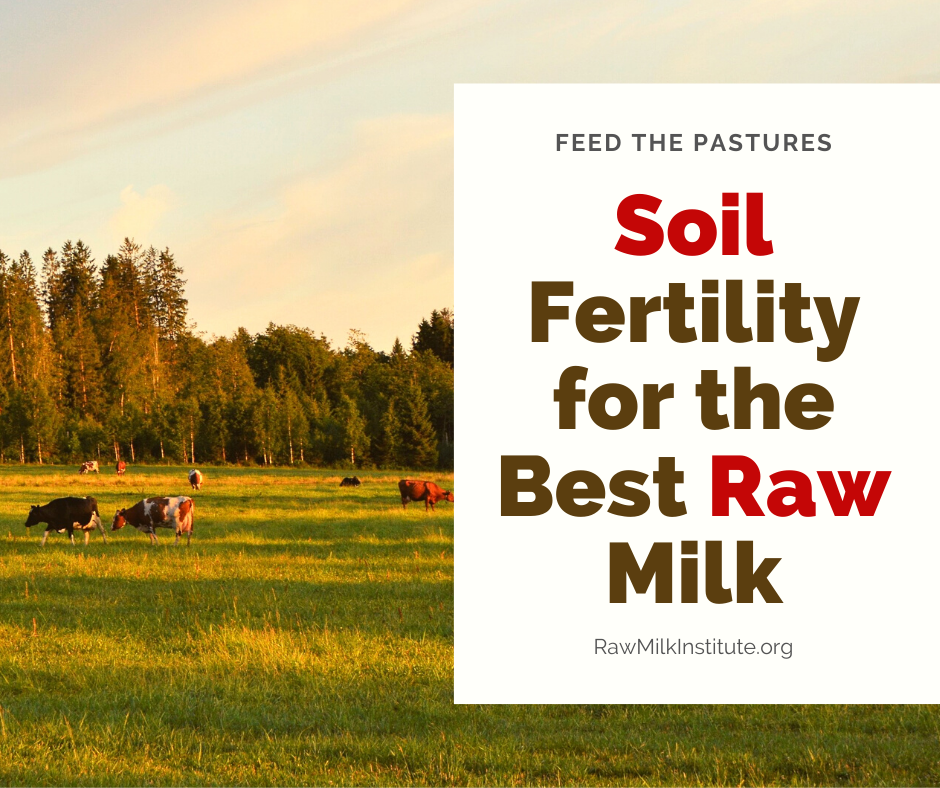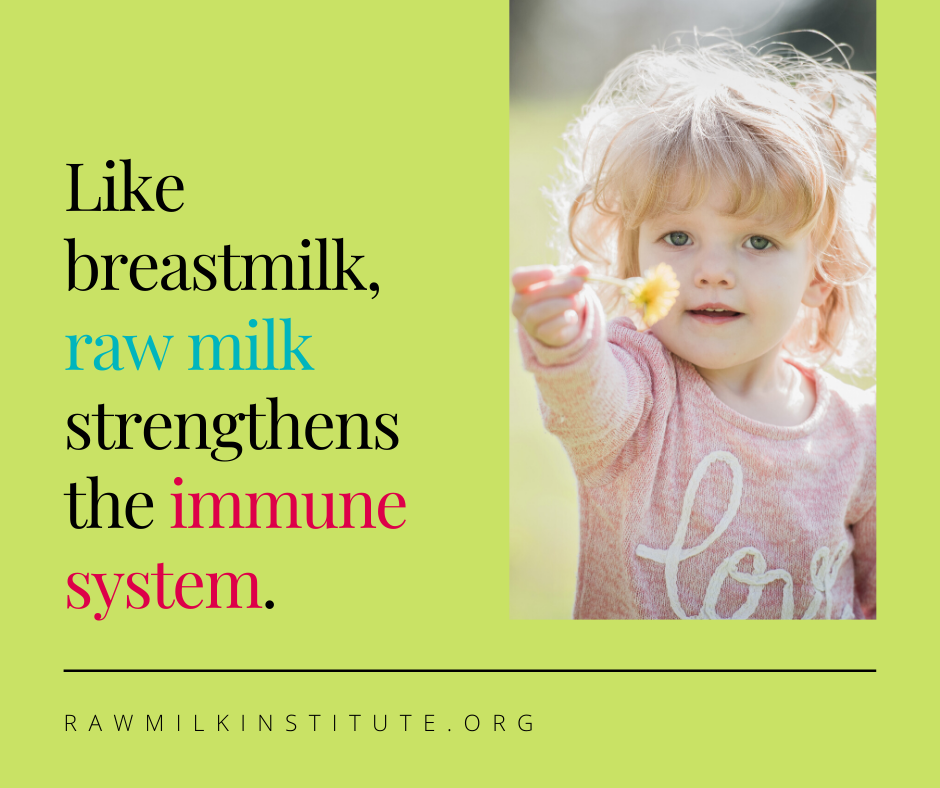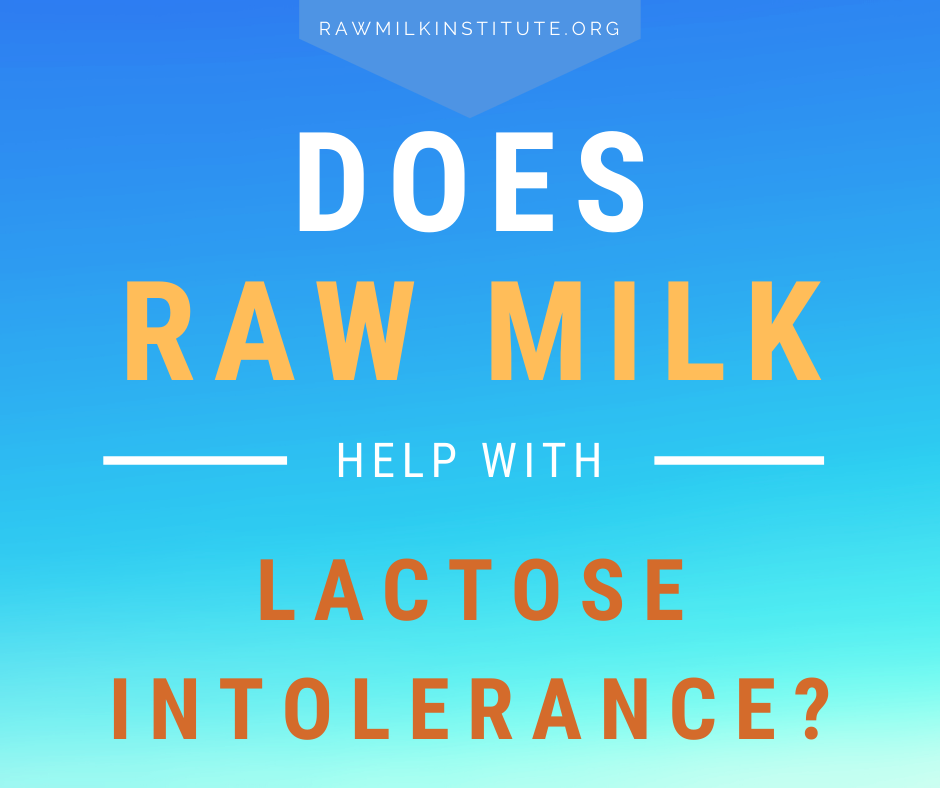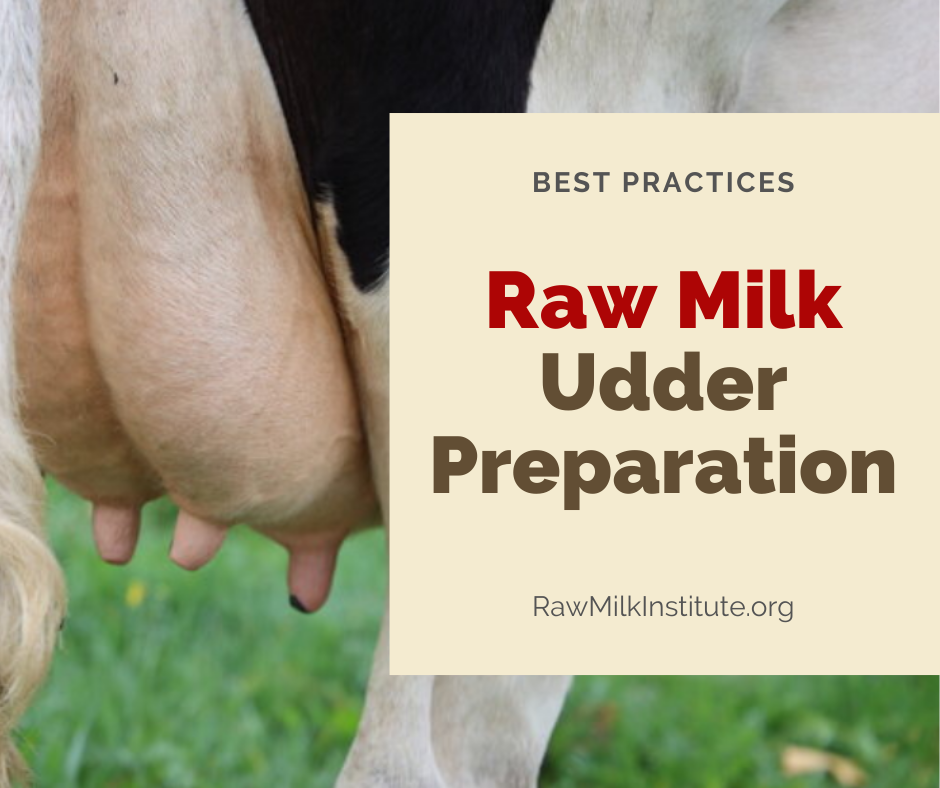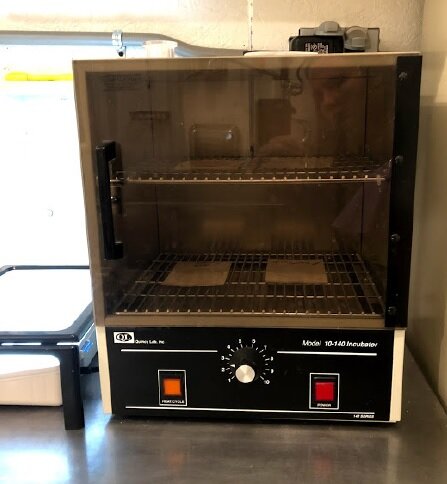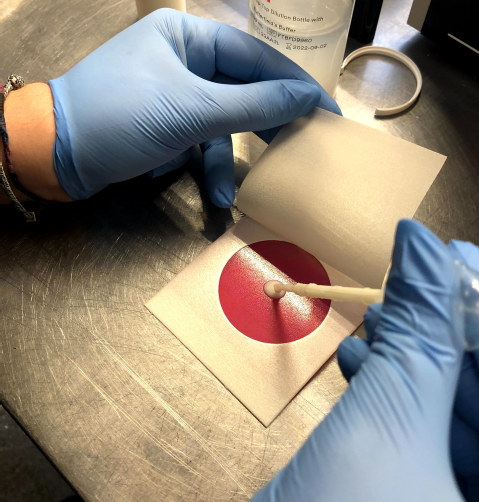This article was written by Stephanie Knutsen, the dairy farmer who was instrumental in the successful legalization of raw milk in Delaware.
My journey to the legalization of raw milk in Delaware (DE) is quite unconventional, mainly because raw milk was not on my radar. Raw milk was illegal in DE and in the states around us, with the exception of Pennsylvania. I assumed it was going to remain so for quite some time. I certainly couldn’t make a difference, but wait… I did! Welcome to my story.
I didn’t seek out a legislator to champion the legalization of raw milk, but one found me! I received a phone call explaining that Senator Buckson was hearing from frustrated consumers about the lack of raw milk access in DE. He wanted to sponsor a consumer-driven bill to legalize raw milk sales, but wanted to tour a dairy farm and hear from DE dairy farmers before proceeding further. Little did I know that raw milk research and advocacy was about to take over my life.
We Drank Our Milk Raw, But Was it Safe to Sell to Others?
We have always consumed our own raw milk from G&S Dairy Farms without hesitation. I firmly believe people should have the right to weigh the risks and benefits to choose for themselves which foods to consume and therefore, I supported the idea of legalization. But, how did we feel about selling raw milk ourselves to the public?
I wondered:
What is the real risk?
How many raw milk related illnesses are there?
Would we be setting ourselves up to lose the farm in a lawsuit while trying to save it with raw milk sales?
How could we live with ourselves if someone got really sick?
These were questions I needed answers to.
Raw Milk Connections and Research
I remember sitting at the computer that night and typing “raw milk” into the Google search bar. By midnight I had landed myself on the Raw Milk Institute (RAWMI) website. The next day, I received the first of numerous personal phone calls from RAWMI Chairman Mark McAfee. I was blown away with the knowledge, support, and guidance that Mark poured into me. RAWMI’s support proved instrumental in this legalization process. I was beginning to build my connections! These connections were a major key to our success story.
Many additional important connections came to me during my countless hours researching data, sifting through the bias on both ends of the spectrum, analyzing CDC datasets, and reaching out to experts across the country. The more I studied, the more clearly I saw the raw deal that raw milk had been getting! For instance, I had heard that raw milk has "life threatening" risks yet in looking at the data, I could only find 2 confirmed deaths due to raw milk in nearly 20 years. This was despite the fact that millions of people regularly drink raw milk. The CDC estimates there are 3,000 deaths annually from food borne illnesses, yet they have only confirmed 2 deaths related to raw milk in ~20 years so the risks of raw milk were being greatly exaggerated.
With a newfound passion ignited, I no longer questioned if raw milk was a good idea for our farm. I could envision a future in dairy for our children for the first time! I committed myself to making sure that DE, which is referred to as “The First State,” was not going to be known as “The Last State” in regards to raw milk legalization.
Learning From a Failed Legalization Attempt
Once I empowered myself with the knowledge and facts, I needed to gather support. A failed attempt for legalization had been made ten years earlier. A friend, who also happened to be the Senate Policy Director, was able to access the recorded tapes from that failed legislation so we could understand who had opposed it and why.
Ten years ago, dairy farmers were worried someone would get sick and make the industry look bad. The Farm Bureau had been neutral about raw milk legalization, but both the Agriculture Department and Health Department were opposed. This understanding gave us a starting point for building support!
Building a Coalition of Stakeholders
Although there were 44 family dairies in DE during the previous attempt at legalization, there were now only 13 dairies remaining. I reached out to these 13 family-run dairies in DE to share my research about safe production of raw milk. I also shared that the market for raw milk is growing and creates a path to sustainability for small-scale dairies. This resulted in an overwhelming amount of positive support for raw milk legalization by dairy farmers of Delaware.
Next was the Farm Bureau, to see if they would potentially be willing to support raw milk legalization instead of keeping their previous “neutral” position. After meeting personally with the Farm Bureau administrator, we reached out to every county Farm Bureau and asked to speak at each of their board meetings. The timing was perfect since every Farm Bureau county hosts a legislative breakfast to inform legislators of upcoming bills and policies affecting farmers.
I presented on raw milk at each of these legislative breakfasts while the bill was still being drafted. The breakfasts allowed me to reach many legislators at once in a personal way. Much of our bi partisan support stemmed from these early face-to-face meetings where legislators could hear the whole story before they even knew about the coming bill. Soon we had every county board and then the state board of the Farm Bureau voting in support for raw milk legalization.
Building Bridges with the Opposition
We knew that the Agriculture Department and Health Department had previously opposed raw milk legalization. Instead of hiding what we were doing, we hoped to bring them along and give them the chance to learn more. This strategy proved successful over and over again.
With farmers and Farm Bureau on board, we were now well-positioned to meet with the Agriculture Department. Despite their longtime stance against raw milk, our Secretary of Agriculture was open to listening. I explained about consumer demand for raw milk, the economic impact to DE dairy farmers, the true risks of illness for carefully produced raw milk, and how we could further reduce health risks through regulations including bacterial testing with on-farm labs to ensure milk meets post-pasteurized standards for bacterial counts. By the end of the meeting, the Secretary of Agriculture was no longer opposed to raw milk legalization. We invited him to have input into the bill language and he eventually became our biggest and most powerful advocate!
We knew the Health Department was likely to be a tougher-sell on supporting raw milk due to entrenched beliefs about raw milk being dangerous. Senator Buckson called a meeting with the Health Department where he shared the “why” behind the legalization bill and mentioned that the bill might be passed due to bipartisan support. The Senator then invited the Health Department to provide input into the bill language to address their concerns. Although I would love to take credit for what happened in that room, all the credit goes to God. Miraculously, the Health Department agreed to be neutral on the bill!
Legalization Success
With farmers, Farm Bureau, and our state agencies on board or at least neutral, we introduced the bill with bi-partisan support in both the house and senate. I could write a novel about every step of the way and the twists and turns we encountered, including the discovery of Bird Flu crossover to dairy! Maybe I will someday, but that isn’t the purpose of this piece. We were successful and raw milk is now legal in Delaware!
Keys To Success
For those who want to advocate for legalization in other states or countries, I want to encourage you. Know that YOU can make a difference. Some of the keys to our success were the following.
Raw milk is no longer just farmer-driven. It is consumer-driven by the countless people and families who deserve access to this special food.
It was important to do the research and have fact sheets available with real data, including comparisons to other foods.
It was crucial to reach out to stakeholders early on, especially to those who were opposed. It was scary and would have been easier to ignore the opposition and hope for the best, but with lots of prayer and bravery I sought after conversations with such people.
An important approach that worked time and time again was to first just listen, show understanding for the concerns, find the common ground and move forward from there. By meeting people where they were, letting them feel validated and heard, and acknowledging that I too had felt that way, we were no longer enemies and we could have meaningful conversations where they were open to learning how my thoughts had changed.
It was also important to build a strong team. Some of the key players on our team were the bill sponsor (Senator Buckson), his policy director, the agriculture advisor to the governor, Raw Milk Institute, Farm-to-Consumer Legal Defense Fund, Pete Kennedy (Weston A Price Foundation), and especially Peg Coleman (who provided scientific backing on risk assessment and valuable information related to the bird flu).
I learned that emails proved to have very little impact and personal interaction was the winning ticket. My advice is to build as much support as possible early on, even before bill writing is complete.
And lastly but most importantly pray! I saw God’s hand at work in this so many times and drew strength from that when I felt weary. He slayed some mighty giants for us along the way and I have to give him the praise and glory. Don’t be complacent. I knew very little about raw milk and look at what was accomplished. You can make a difference! If I could do it, you definitely can too!









